The depths of Jack Warner's greed: Excerpt from American Huckster

This article is excerpted from American Huckster: How Chuck Blazer Got Rich From—and Sold Out—the Most Powerful Cabal in World Sports by Mary Papenfuss & Teri Thompson, available April 26 from HarperCollins. It can be pre-ordered here.
A jumble of bleached concrete structures rises in the sticky heat across from farm fields in the tiny Trinidadian township of Macoya. CONCACAF, the acronym of the soccer federation representing the Caribbean and Central and North America, is spelled in large blue letters on a water tower. The complex includes a bathhouse, an outdoor swimming pool, the small Marvin Lee Stadium and soccer field, a hangar-sized meeting and banquet building, a health club and an inn. The buildings are so out of place in this tropical landscape 11 miles east of Port of Spain that they could have been dropped there by aliens. But they’re hardly futuristic or even state of the art. The electricity sometimes flickers out at the inn, or the hot water trickles to nothing.
This is CONCACAF’s $26 million Centre of Excellence.
Q&A: FIFA president Gianni Infantino
It was meant to help promote the beautiful game and develop playing and coaching skills. Instead, it’s the mother of sports boondoggles, built by the man branded by one U.S. law enforcement investigator as FIFA’s crook of crooks: former CONCACAF president Jack Warner.
Warner’s greed was deeper than the Caribbean, and it would drown both him and his longtime American partner in crime, CONCACAF secretary general Chuck Blazer.
Blazer had backed Warner to become the association’s president in 1990, an initially lucrative miscalculation that, a decade and a half later, would trigger Blazer’s ignominious downfall—and FIFA’s. Over the years Warner’s scams became ever more brazen and his invective ever more outlandish until they exposed the FIFA executive committee’s dirty business, which had been cloaked for decades behind impeccable manners and carefully coded conversations at elegant dinners.
The Centre of Excellence was Warner’s brainchild, paid for by FIFA and CONCACAF. But the CONCACAF board didn’t discover until 2012 (17 years after the center was approved) that the complex had been built on land owned by Warner. He used soccer association funds to buy the real estate and controlled all construction and operating funds. As of late 2015, four years after his removal from both CONCACAF and the FIFA executive committee (Ex-Co), Warner still owned the center and collected income from it.
The complex is tucked away at the extreme southeastern edge of the vast CONCACAF territory, which extends from the Caribbean to northern Canada. “It’s as if we located it in some backwater town in Alaska,” noted Clive Toye, the former general manager of the defunct New York Cosmos, who worked for a time for CONCACAF. “There was a soccer pitch, but not a very good one, and I never saw a single person playing a game or practicing.”
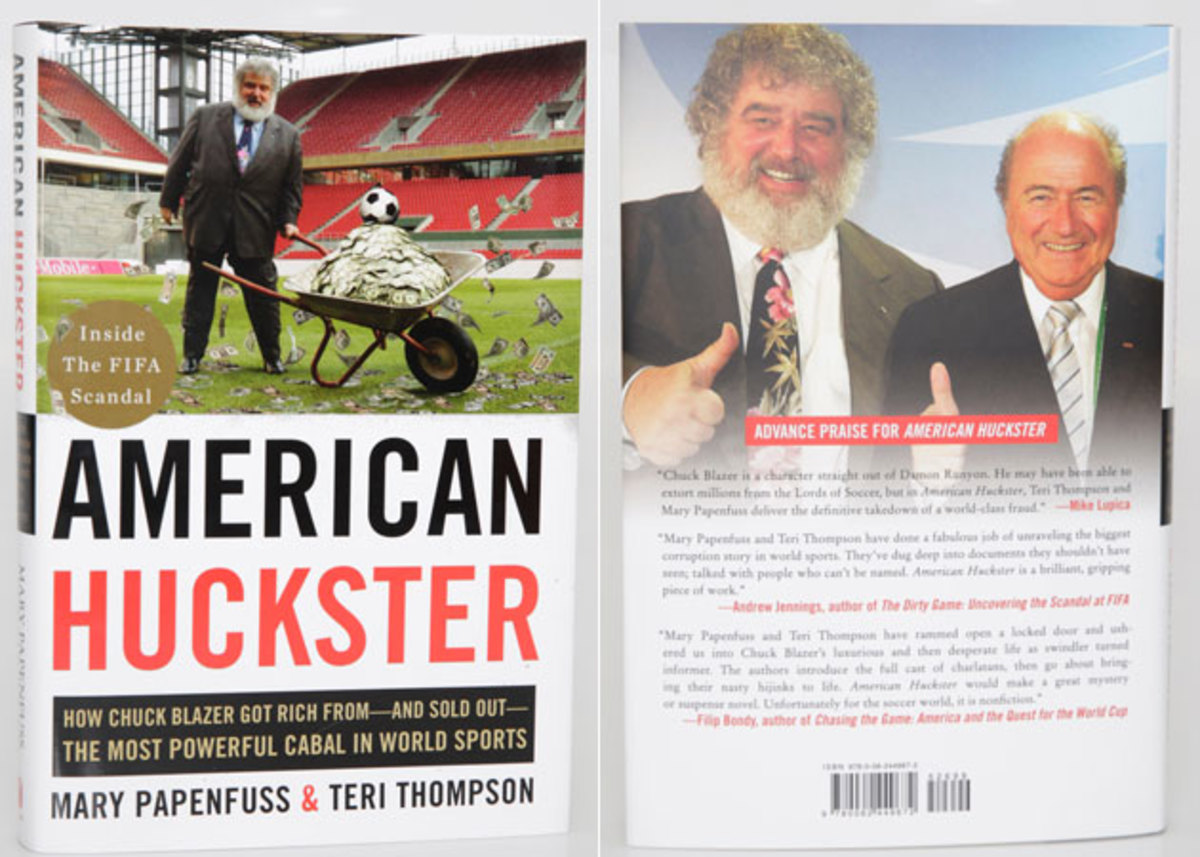
There seemed to be everything else, though. The Centre of Excellence has hosted the Trini Ink Tattoo Convention, the Caribbean Nail and Beauty Trade Show and a Barely Legal Pimp My Ride car show. Weddings are its major moneymakers. As for soccer-related activities, very occasional coaching clinics are conducted by the Joe Public Football Club, one of Warner’s many family companies. The Warner family travel agency, Simpaul, arranges all transportation to the site.
In 1996 João Havelange, who was then FIFA’s president thanks in part to the votes of Caribbean nations that Warner delivered, praised Warner for his “vision” in creating the center. By then two Warner family companies, CCAM and Company Ltd. and Renraw Investments Ltd., had purchased the three plots of land for the center for a total of $1.7 million. The first purchase in Renraw’s name was tracked directly to FIFA funds; records on the purchase details for the other parcels are missing, but CCAM and Renraw bought the land shortly after FIFA funds were deposited in—and vanished from—CONCACAF accounts.
USA's Sunil Gulati plays pivotal role in FIFA election outcome
CONCACAF spent at least $26 million on the construction and development of the Centre of Excellence from ’96 to 2006. Warner also leveraged the property as collateral to obtain personal loans, according to a subsequent investigative report by CONCACAF’s integrity committee. The committee was unable to determine how any of the millions spent on the center were used, because all records (if any existed) were kept by Warner, who refused to turn them over.
The boldness of the scam worried Blazer. The two men had colluded to collect bribe money in CONCACAF tournaments such as the Gold Cup, Blazer would later confess in U.S. court, and they had covered for each other on individual moneymaking schemes. But the Centre of Excellence was a monster con that devoured funds needed to run the association and its legitimate activities. “There are so many things that could have been done with the tens of millions of dollars wasted there,” Blazer is quoted as saying in the integrity committee report.
A key part of the two men’s ruse was to create annual financial statements that didn’t raise any alarms with the federation board. Warner and Blazer flew in accountant Kenny Rampersad from Trinidad to CONCACAF’s Trump Tower headquarters in New York City to create the financial reports. In the confidential 2008 financial statement, the Centre of Excellence was listed as a CONCACAF—not a Warner—asset worth $25 million ($20 million after a 12-month depreciation). Rampersad was also the accountant for the Centre of Excellence and for the Trinidad and Tobago Football Federation (TTFF), which Warner controlled.
The center also served as a pipeline for influence. Anyone wishing to curry favor with Warner could organize a trip to Macoya and book travel through Simpaul at grossly inflated costs. In September 2010, while England was clamoring to become the 2018 World Cup host, the David Beckham Academy conducted a six-day training session for boys at the center. That same year Australia’s bid committee for the 2022 World Cup agreed to contribute $485,000 to upgrade the Marvin Lee Stadium two months before the votes on the ’18 and ’22 Cups. The check was supposed to be processed through CONCACAF, but the Australians were directed by Warner’s office to send the funds to an account in the Bahamas.
Student rips into Sepp Blatter at FIFA reform seminar in Basel
Warner controlled at least four accounts with slight variations in name, a shell game to cache diverted funds, investigators for the integrity committee discovered. When Blazer asked Australian bid committee chairman Frank Lowy about the promised money, the men realized it had been hijacked into one of Warner’s accounts.
(Lowy later denied the money was intended as a bribe.)
Another contribution, cited in the U.S. indictments of multiple FIFA officials in May 2015, was South Africa’s bombshell $10 million donation to the center. U.S. officials called it a bribe. Blazer “understood the offer to be in exchange” for his and Warner’s FIFA Ex-Co votes backing South Africa’s bid to host the 2010 Cup, according to the federal indictments.
When CONCACAF investigators finally discovered in 2012 that Warner was the legal owner of the Centre of Excellence, he insisted the facility had been intended all along as a “gift for the Caribbean and Jack Warner” by his mentor, Havelange. “There is no ambiguity,” Warner announced. He claimed he had been given an initial $6 million grant for the center in exchange for a promise to Havelange that he would deliver CONCACAF votes to Havelange’s chosen successor as FIFA president, Sepp Blatter. With CONCACAF’s votes, Blatter did indeed win, 111 to 80.
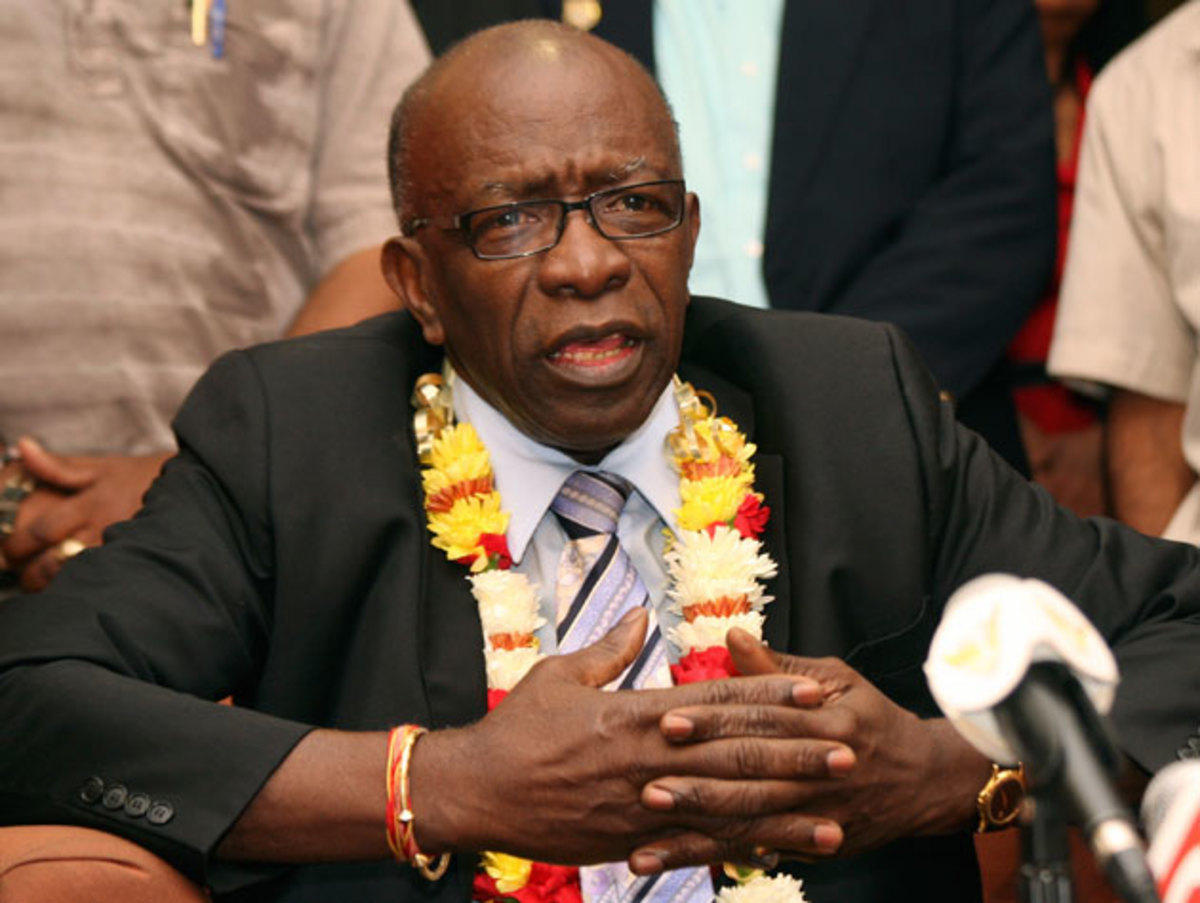
It was this kind of breathtaking flimflam that helped turn an impoverished Trinidadian boy into a multimillionaire. Warner was one of six siblings raised largely by his mom, Stella, in the village of Rio Claro in southern Trinidad. Stella did cleaning and took in laundry for the parents of a number of Jack’s classmates. His peers sometimes used this to embarrass him, a teacher recounted in Warner’s biography From Zero to Hero, which he co-wrote with journalist Valentino Singh.
Later, when the Warner children lived with an aunt in another community, they faced a different form of discrimination: racism. Rio Claro was “dominated by Afro-Trinidadians,” the biography states; “now [Jack] found himself surrounded by Indo-Trinidadians” in a community where people’s “complexion often dictated how they were treated.” Even his aunt, whose children had lighter skin, treated her nieces and nephews differently. In his biography Warner compared his experience to Cinderella’s: “We were treated like outcasts and it was almost as if we were brought there to look after my aunt’s children.”
Warner was a bright, industrious student whose good grades earned him scholarships to some of Trinidad’s most rigorous schools. He attended the College of St. Philip and St. James and later earned a degree in international relations from the University of the West Indies. Eventually he became a history teacher at the island’s prestigious Polytechnic Institute.
Warner played soccer, but not very well. He loved the game, though, and was drawn to participate in its life in any way he could. He began by serving as general secretary of the Central Football Association and the Central St. George Football Association and rose to become secretary and head of the TTFF and eventually head of the Caribbean Football Union (CFU).
Loretta Lynch: 'I am the FIFA slayer'
Warner’s cunning and his hardscrabble background served him well amid the varied demographics of Trinidad and Tobago’s soccer associations—and, later, in island politics. But few members of FIFA’s Ex-Co, to which Warner was elevated in 1983, had a soccer history as controversial as his. Printing and selling fake tickets and failing to pay players at the 1989 World Cup playoff was just the beginning.
In 2002 Simpaul Travel, the Warner family company, sold hundreds of black-market World Cup tickets packaged in expensive trips at a $350,000 profit, FIFA investigators discovered. For the ’06 Cup in Germany, Simpaul made at least a $1.7 million profit by selling $30,000 ticket-and-trip packages, which was by then against the rules—and the law, according to the 2015 U.S. charges filed against Jack’s son Daryan Warner. As a penalty FIFA ordered the Warner family to make a $1 million donation to a charity, but only $250,000 was paid. Jack Warner also agreed to sever all family ties to Simpaul—but Daryan remained a director.
Media rights giveaways to Warner from FIFA presidents in exchange for his crucial support also made him a fortune. Havelange “sold” Caribbean broadcast rights to the ’90 and ’94 World Cups to Warner for $1 each so he could resell them for millions. The profits were supposed to be spent developing soccer in the region, but Warner was free to use the proceeds as he saw fit. By Warner’s admission, Havelange and Blatter arranged the same deal for the ’98 rights, to reward Warner for helping to get Blatter elected FIFA president.
Blatter sold Warner Caribbean broadcast rights for the ’10 and ’14 World Cups for a total of $600,000, according to a contract uncovered by Swiss television station SRF. Warner sublicensed the rights to his private company J&D International (JDI), registered in the Caymans Islands, which in turn sold them to Jamaica SportsMax TV for as much as $20 million. Warner claimed that Blatter also gave him steep discounts on rights for the ’02 and ’06 Cups. JDI resold the ’06 World Cup rights for $4.25 million. No one but Warner knows where the money ended up.
Ticket and media deals were augmented by bribes and outright theft, according to U.S. law enforcement authorities and some soccer leaders. Lord David Triesman, the former chairman of the English Football Association and head of England’s bid for the ’18 World Cup, accused Warner in ’11 of soliciting almost $4 million in return for votes. Funds were supposed to be filtered—again—through the Centre of Excellence. Warner called the allegations a “piece of nonsense.” Blatter vowed to look into the accusations but said he couldn’t be responsible for the activities of all the Ex-Co members, who “might be angels or they could be devils.”
Some $750,000 paid to the TTFF by FIFA and the South Korean Football Federation intended for victims of the catastrophic earthquake that struck Haiti in 2010 vanished while Warner was special adviser to the Caribbean association. TTFF officials said the money landed in an account controlled by Warner.
Warner thought nothing of pressing targets for money loudly and pointedly—in front of witnesses. He even badgered the Queen of England while having tea with her at Buckingham Palace as part of her nation’s bid to host the World Cup. Warner berated Her Majesty for not spending money to cultivate soccer in Trinidad and Tobago. When representatives of Russia gathered at CONCACAF offices in Trump Tower for an early meeting concerning their 2018 World Cup bid, Warner blurted out at the end of their presentation: “What’s in it for me?”
Warner felt even more invincible as his increasing popularity in Trinidad thrust him into the political arena and he was appointed the country’s minister of security. In 2007 Warner was elected co-chairman of the opposition party, the United National Congress-Alliance. He became a member of Parliament when the party grabbed 15 of 41 seats in the election that year. He won again in 2010 and vowed to enforce capital punishment by hanging to crack down on crime and corruption. (There hasn’t been a hanging in Trinidad and Tobago since 1999.)
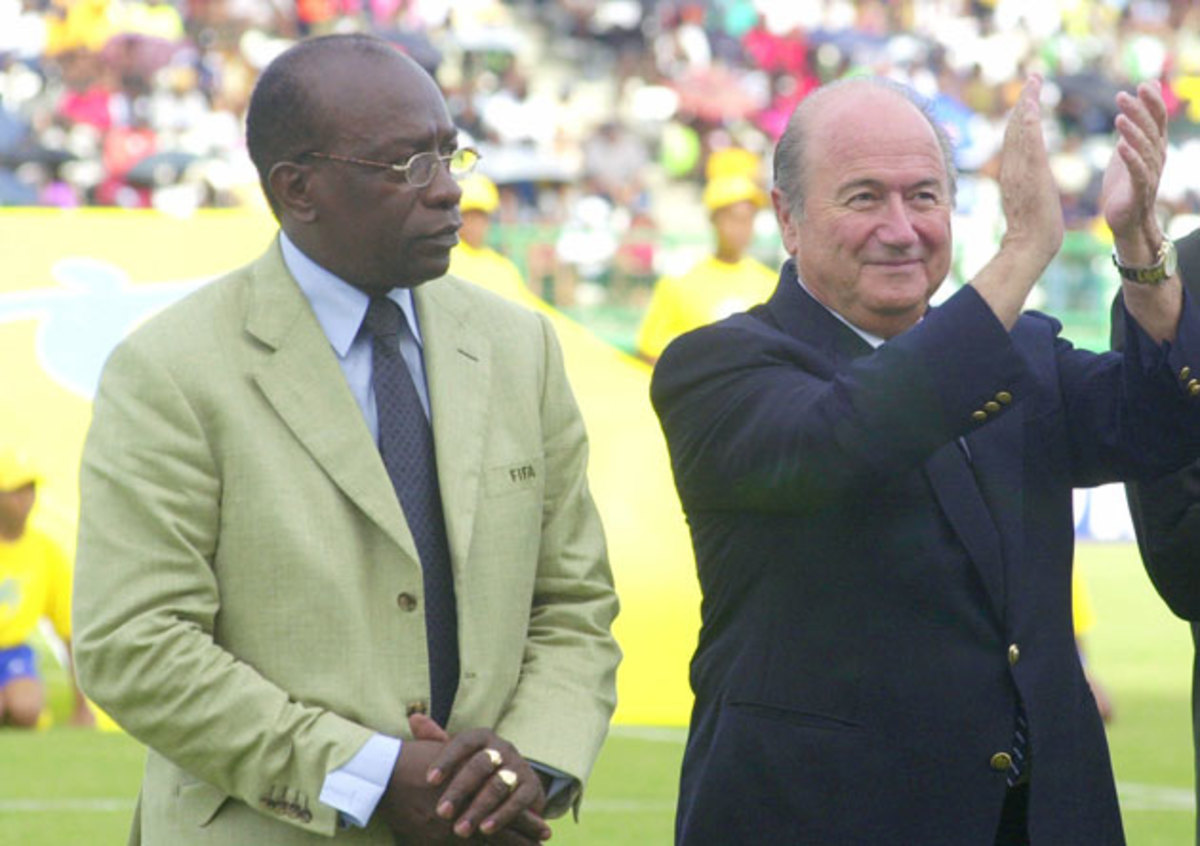
Warner allied himself with people and countries he considered to have been rebuffed by the old, white, Western world of FIFA power brokers. He repeatedly emphasized his nation’s part in the African diaspora. He felt that the Caribbean had been disrespected by FIFA, and he portrayed his indictment in 2015 as persecution by the spoiled Americans, who were miffed because they had missed out on hosting the 2018 World Cup. “America believes that it has some divine right to get the World Cup,” he said in a videotaped news conference, “and they don’t believe that a country like Qatar, a small country—a Muslim country—has a right to a World Cup.”
In the midst of this Warner mistook an article in the satirical newspaper TheOnion as legitimate journalism. The piece was headlined “FIFA Frantically Announces 2015 Summer World Cup in United States.” The article, with a Zurich dateline, reported that matches were “set to kick off today . . . in Los Angeles.” A smiling Sepp Blatter unveiled the tournament’s official logo, a hand-drawn stick figure kicking a soccer ball with “USA 2015!” scribbled above its head in black marker. Warner posted a video to his Facebook page in which he held up the Onion article and asked incredulously, “If FIFA is so bad, why is it that the USA wants to keep the FIFA World Cup?”
Even more entertaining was Warner’s dustup with British comedian John Oliver on Oliver’s HBO show Last Week Tonight. Warner had denounced his indictment in a paid political ad on Trinidad TV. He vowed to provide evidence linking FIFA officials and the 2010 Trinidad presidential election. “Not even death will stop the avalanche that is coming,” he said.
Oliver, all faux outrage and concern, paid for a spot on the same Trinidad station to run a portion of his comedy monologue answering Warner. He urged the Trinidadian to abide by his promise to lay bare FIFA’s disgusting secrets. Warner’s response again was clueless. He gravely attacked Oliver for “embarrassing” the citizens of Trinidad and Tobago. He called the British comedian an “American foreigner” and grumbled, “I don’t need any advice from any comedian fool.” That made Oliver giddy. He crowed on his program that he was adding “comedian fool” to his business card.
GALLERY: Faces of the FIFA scandal
Faces of the FIFA Scandal
Sepp Blatter
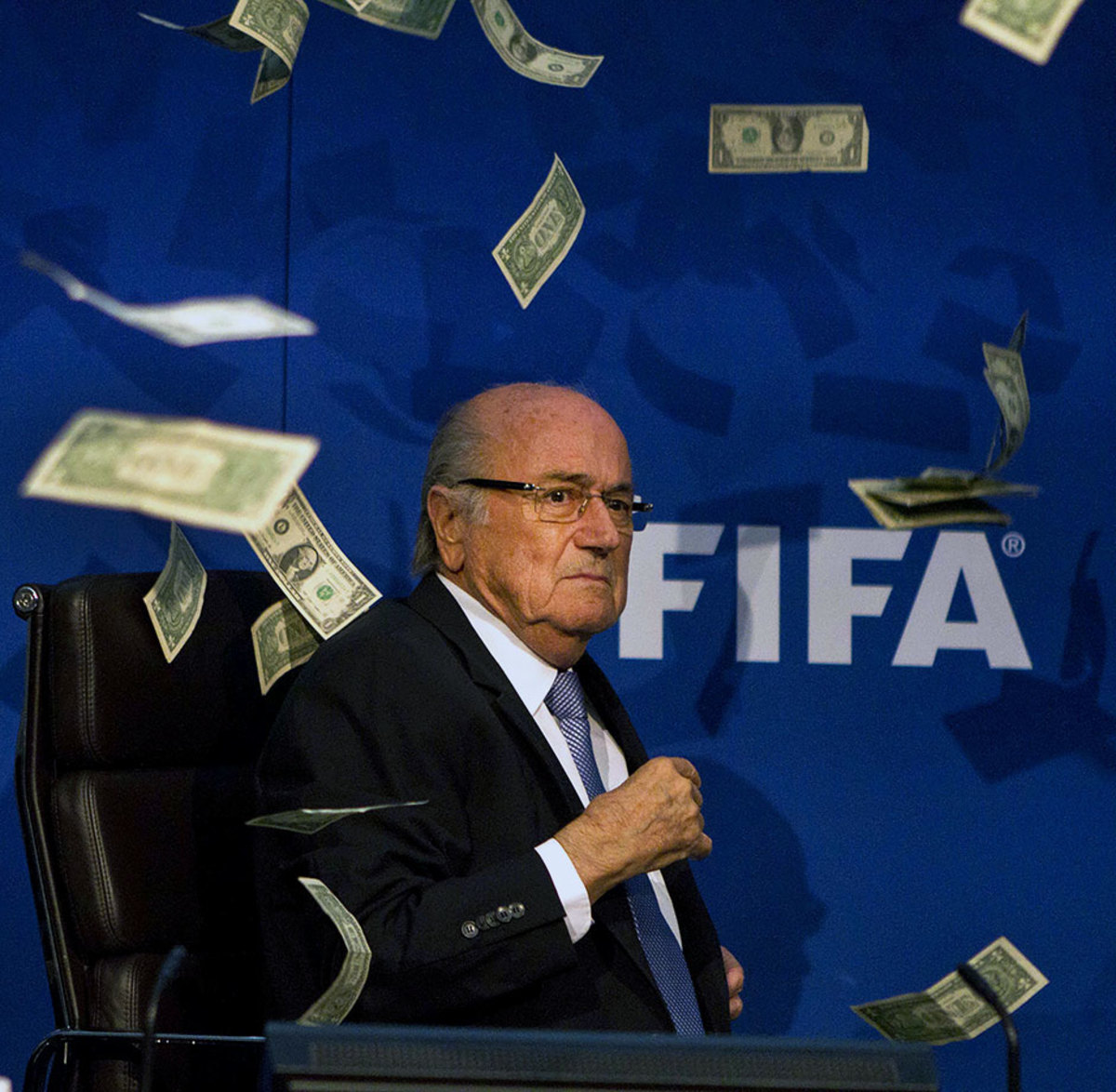
FIFA president
Jerome Valcke
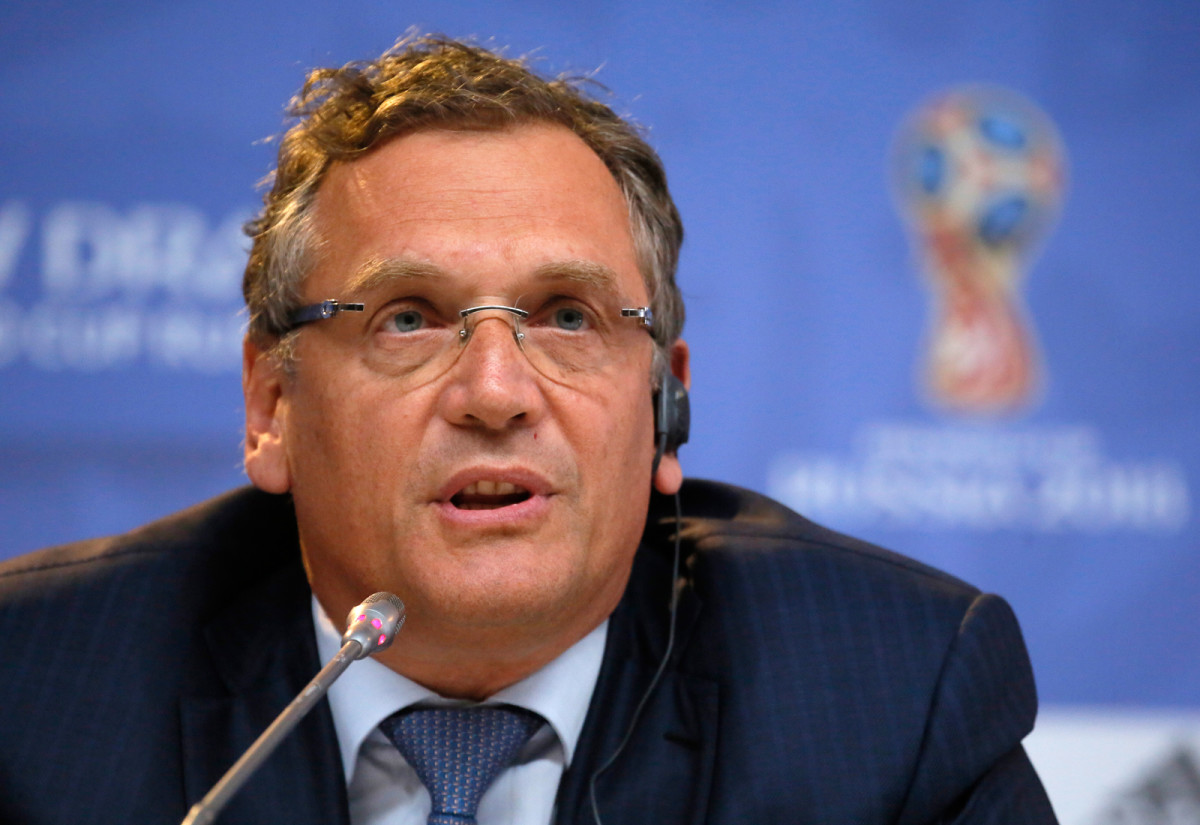
FIFA general secretary
Michel Platini
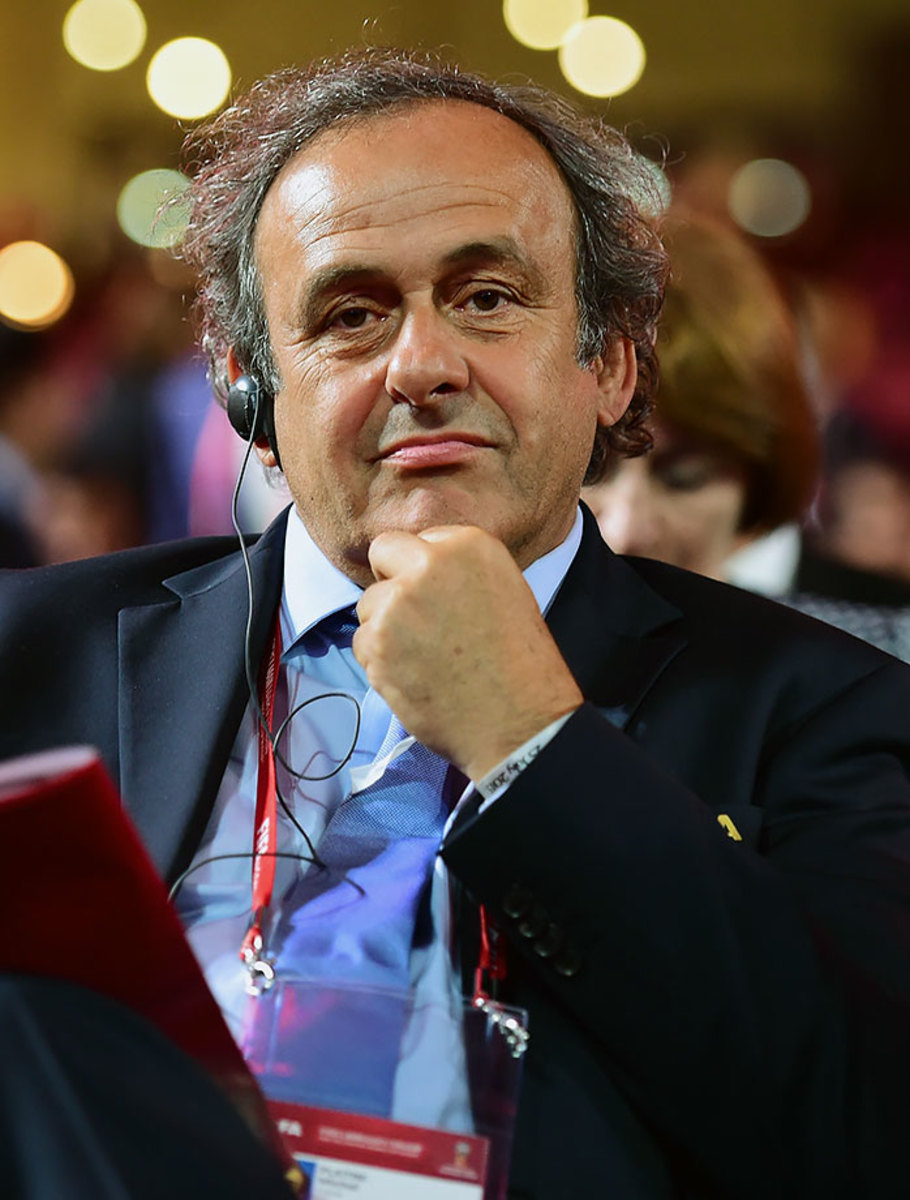
UEFA president; FIFA Vice President; FIFA presidential hopeful
Jack Warner
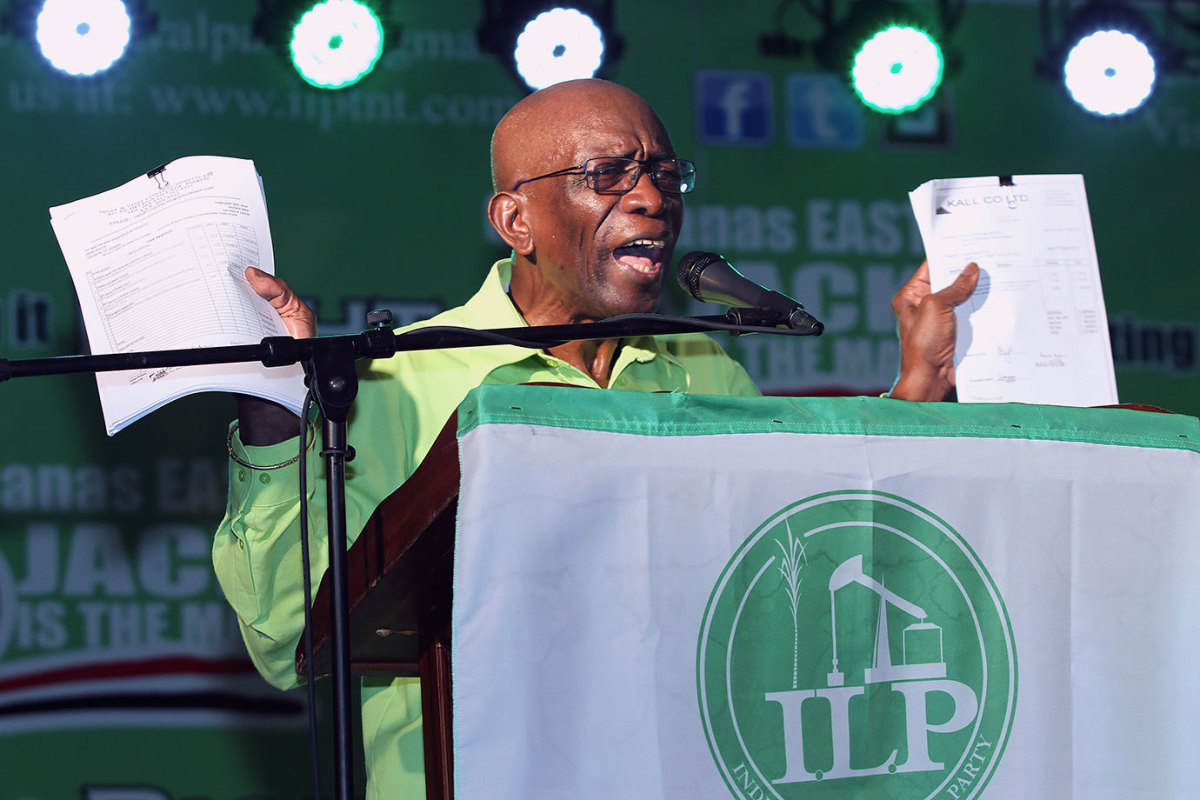
Ex–CONCACAF president; FIFA Vice President
Jeffrey Webb
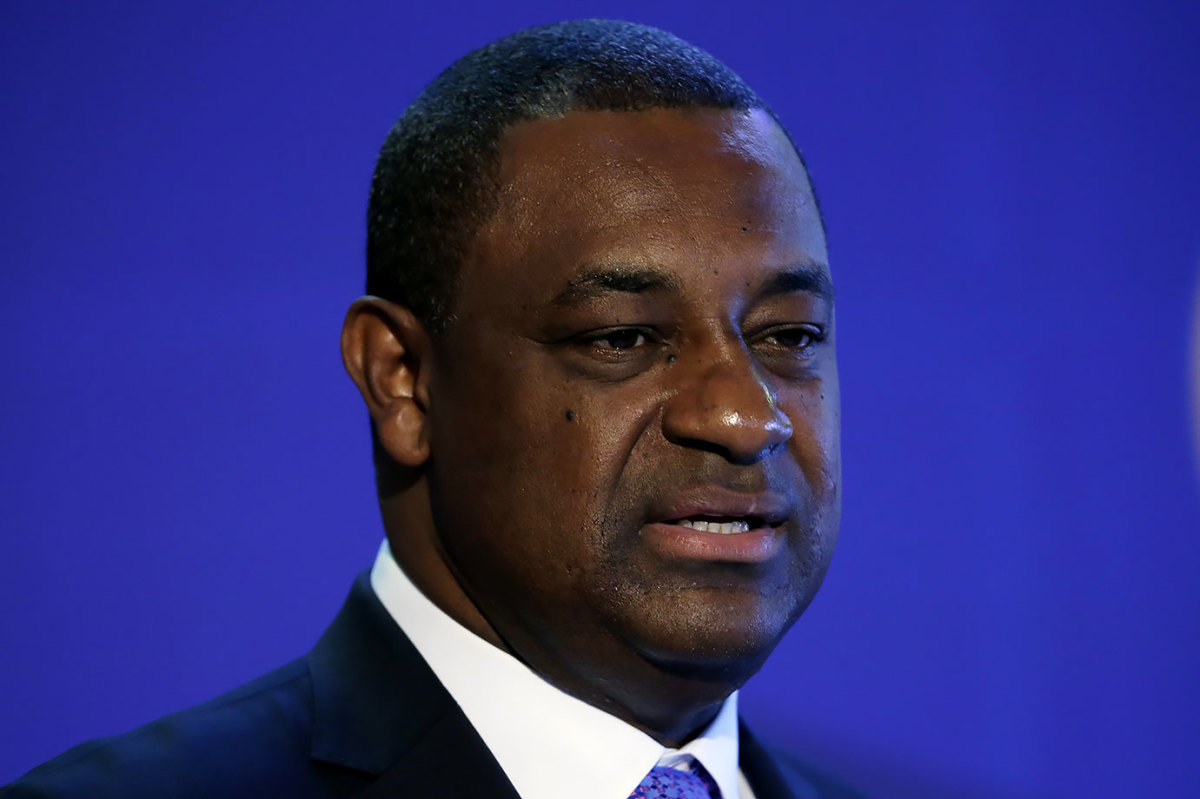
Ex–Cayman Islands federation and CONCACAF president; FIFA Vice President
Chuck Blazer
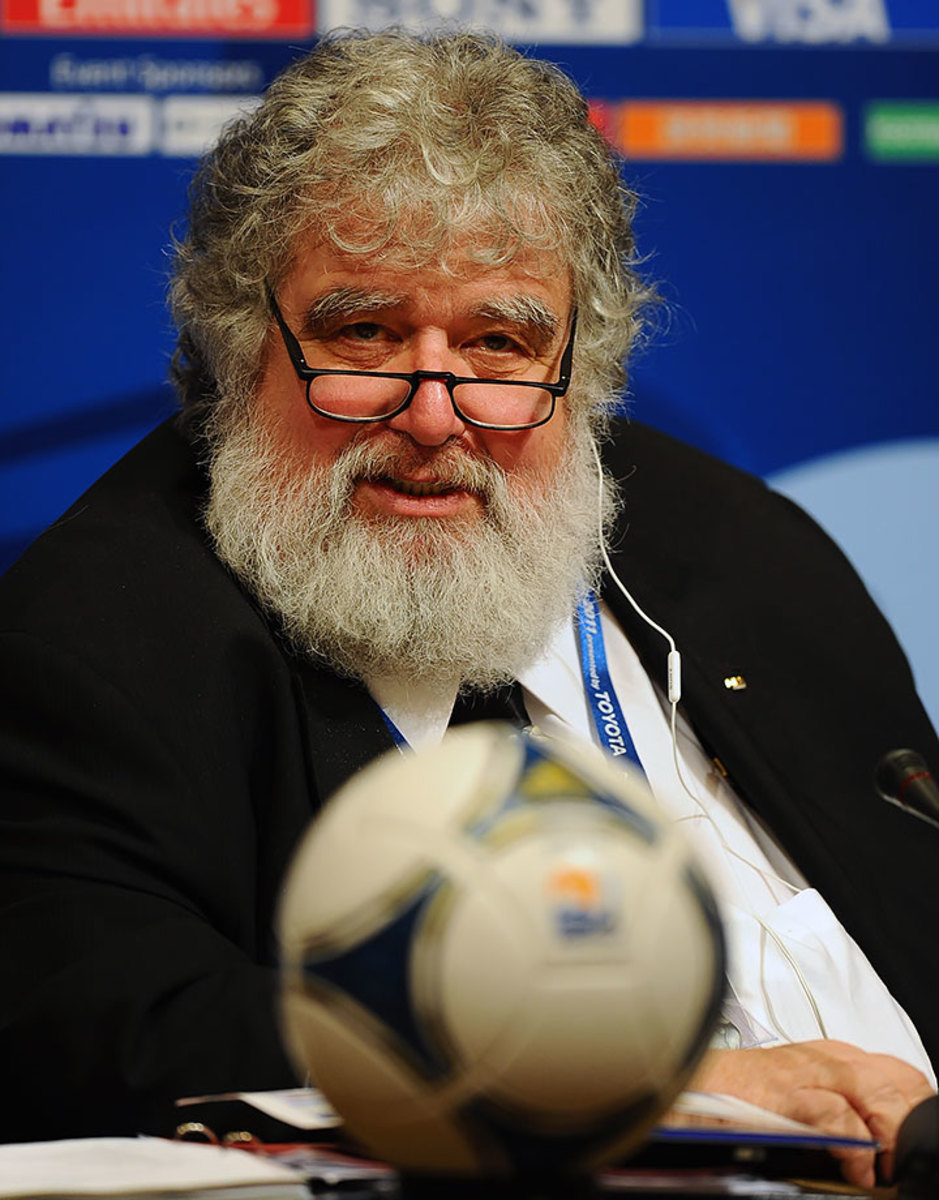
Ex-CONCACAF general secretary; FIFA executive committee
Alfredo Hawit
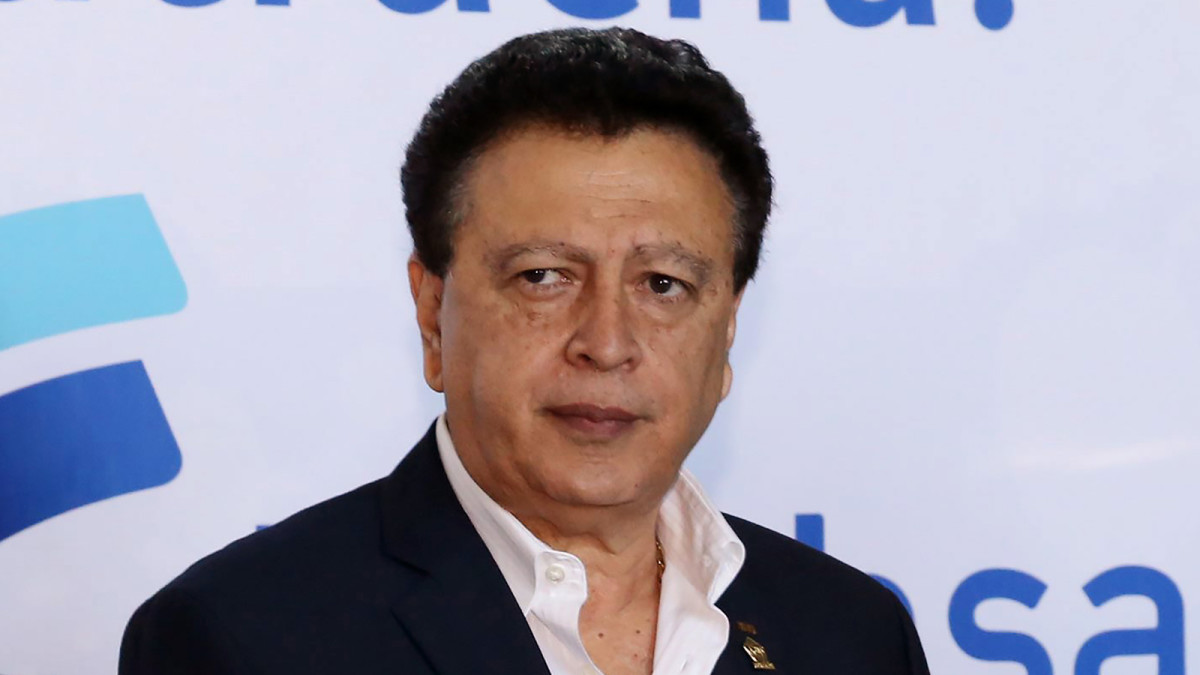
CONCACAF President; FIFA vice president, executive committee; Former president, Honduras football federation
Juan Angel Napout
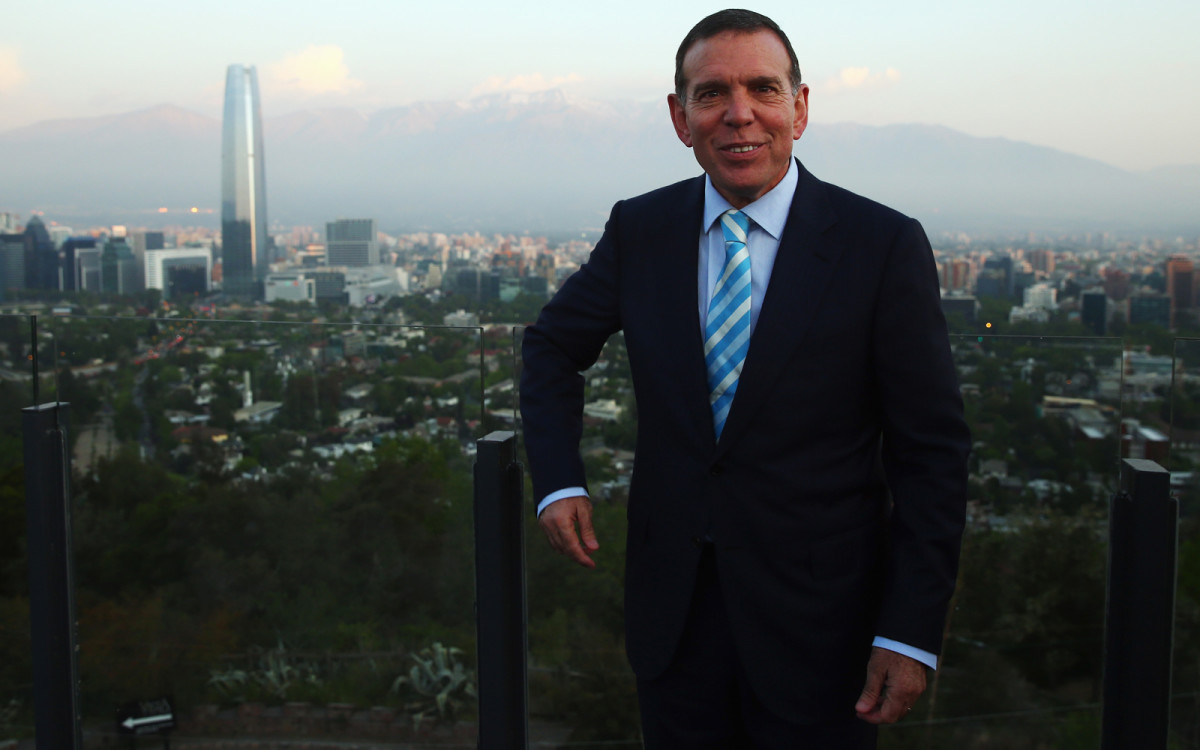
CONMEBOL president, FIFA vice president, executive committee; Former president, Paraguay football federation
Jose Luis Meiszner
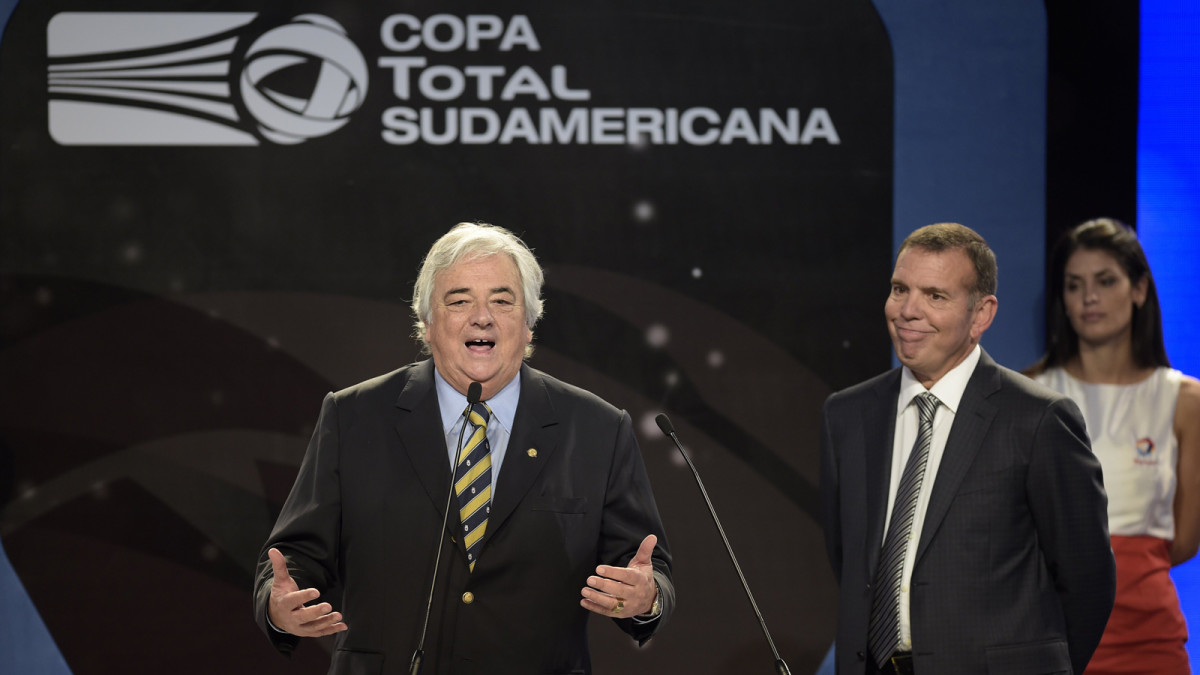
CONMEBOL general secretary
Marco Polo del Nero
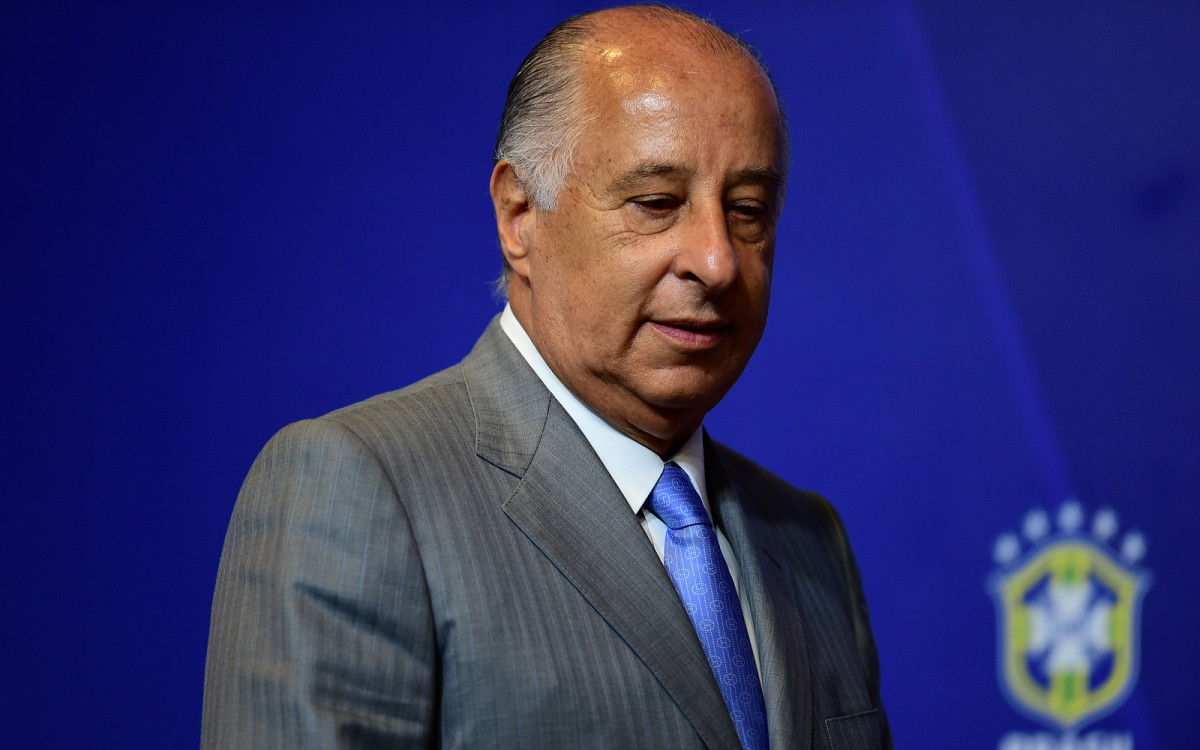
Former FIFA executive committee; President, Brazil football federation
Ricardo Teixeira
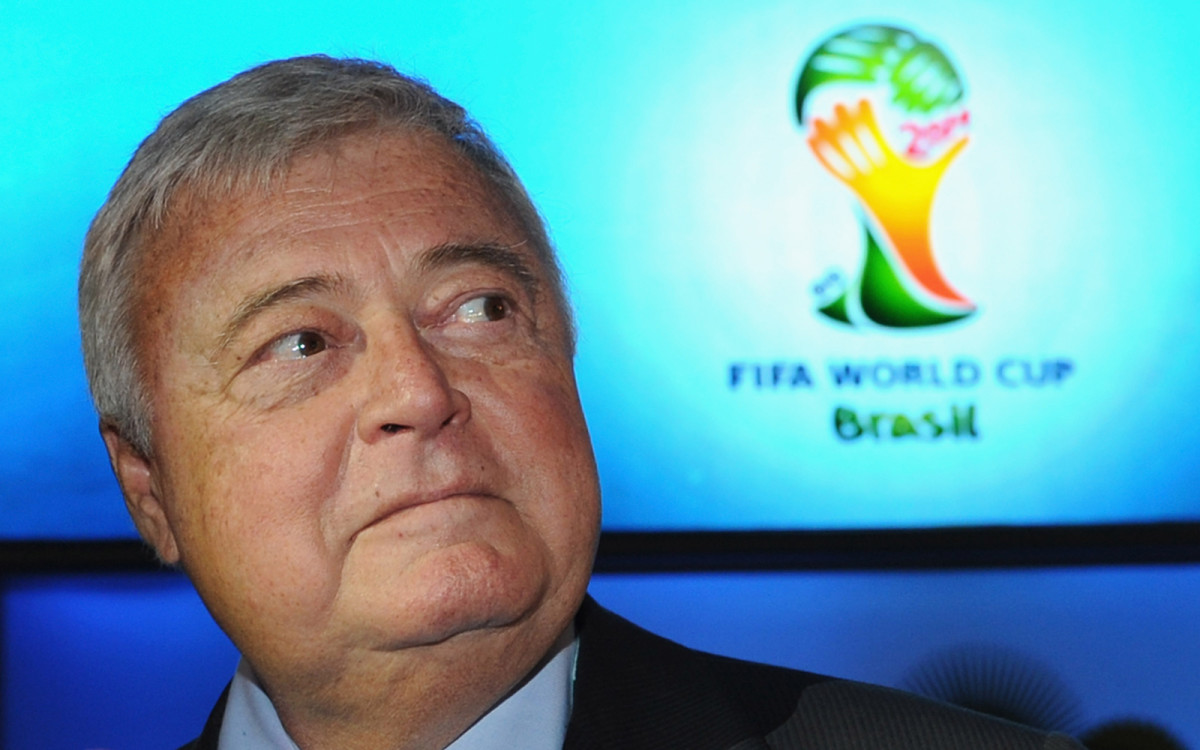
Former FIFA executive committee; Former president, Brazil football federation
Eduardo Li
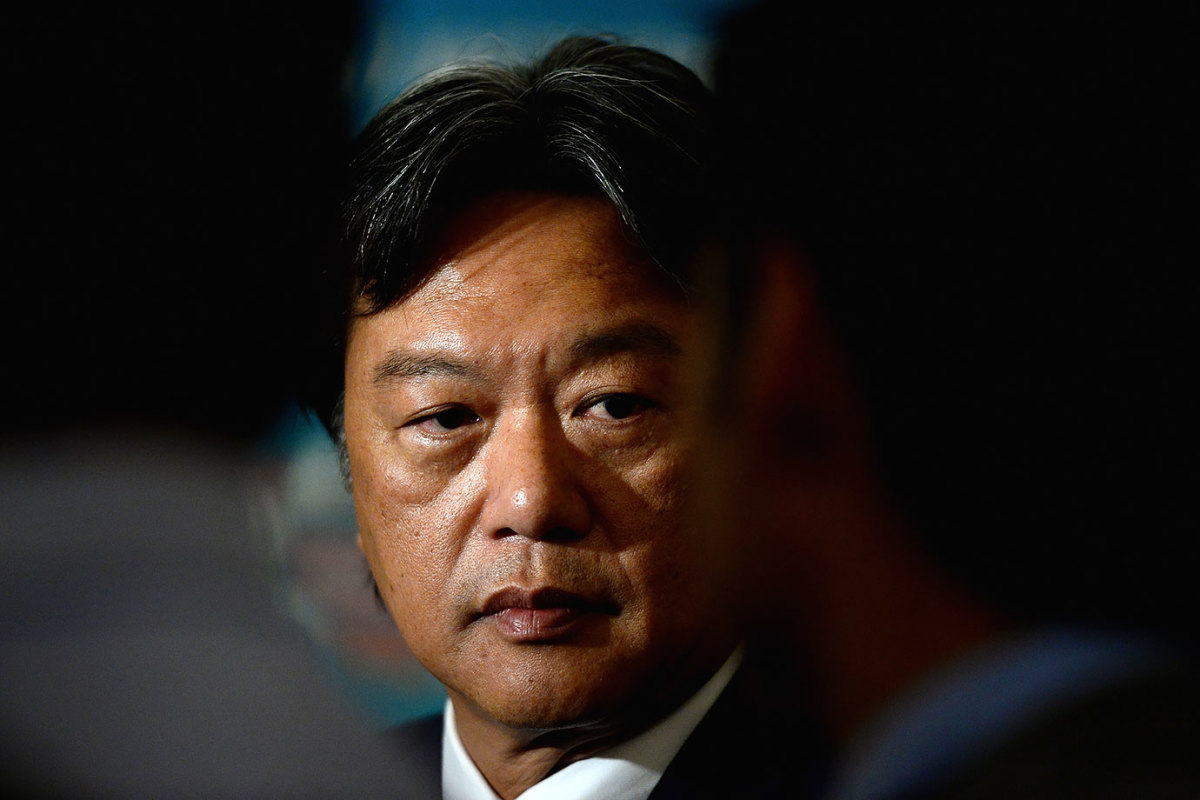
Ex–Costa Rica federation president; FIFA, CONCACAF executive committees
Eugenio Figueredo
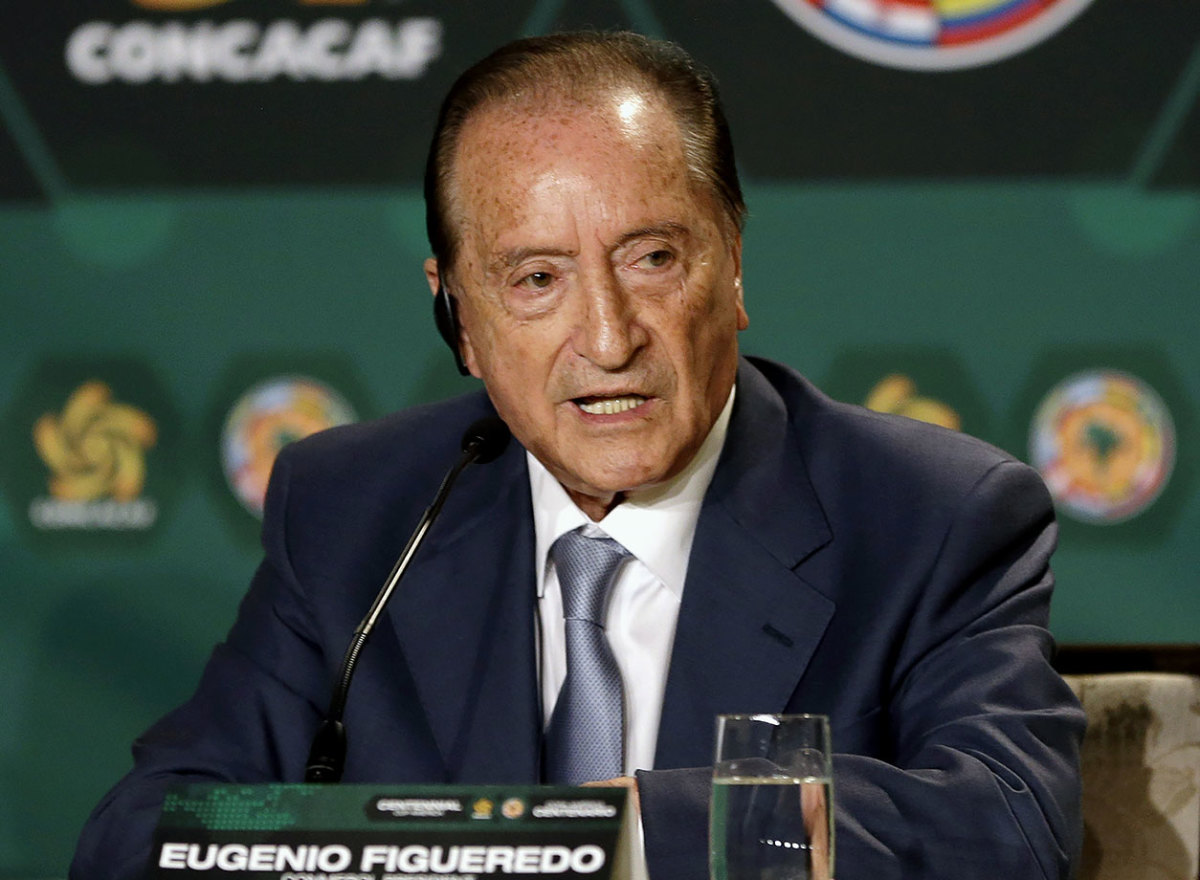
Ex–Uruguay federation and CONMEBOL president; FIFA Vice President
Jose Maria Marin
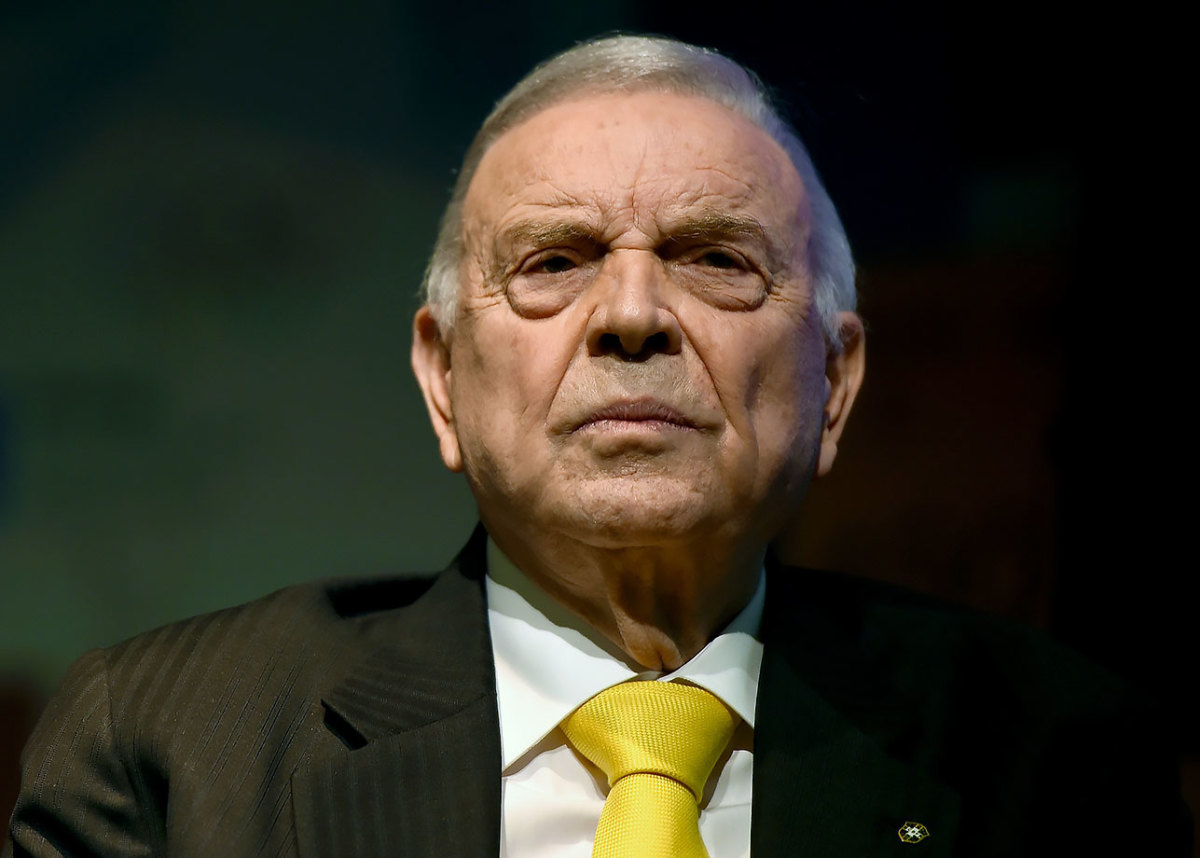
Ex–Brazil federation president; CONMEBOL executive committee
Rafael Salguero
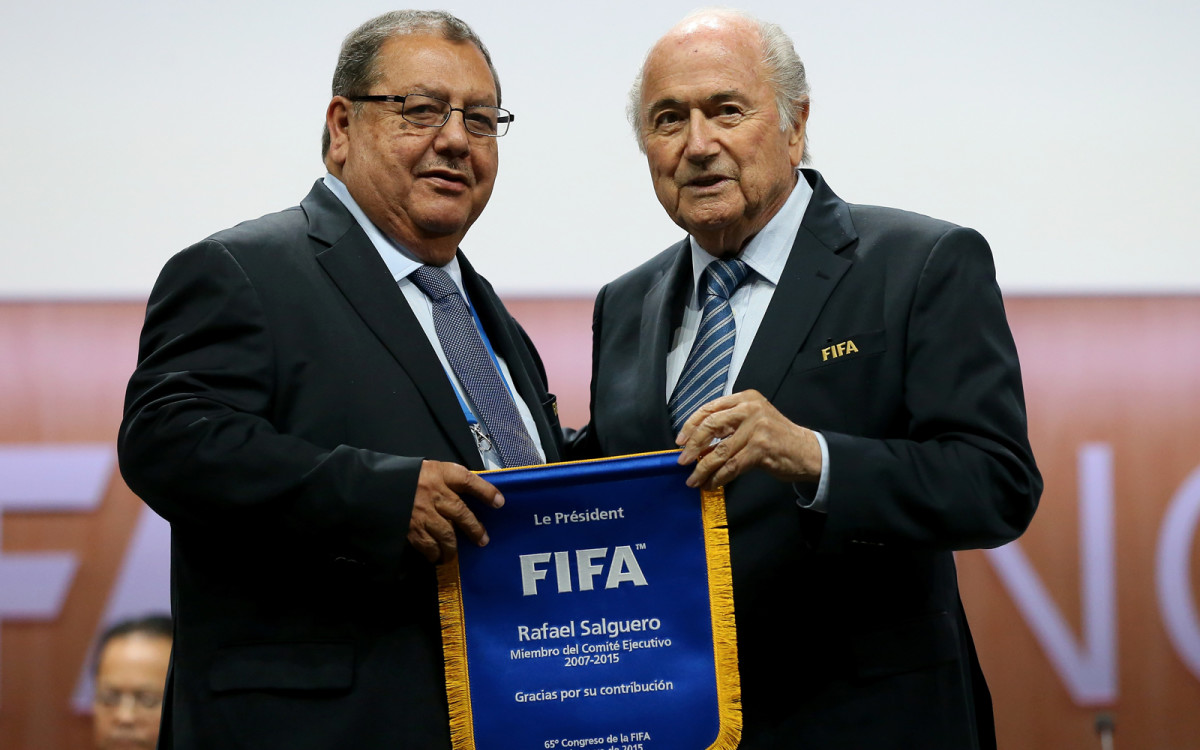
Former FIFA executive committee; Former president, Guatemalan football federation
Manuel Burga
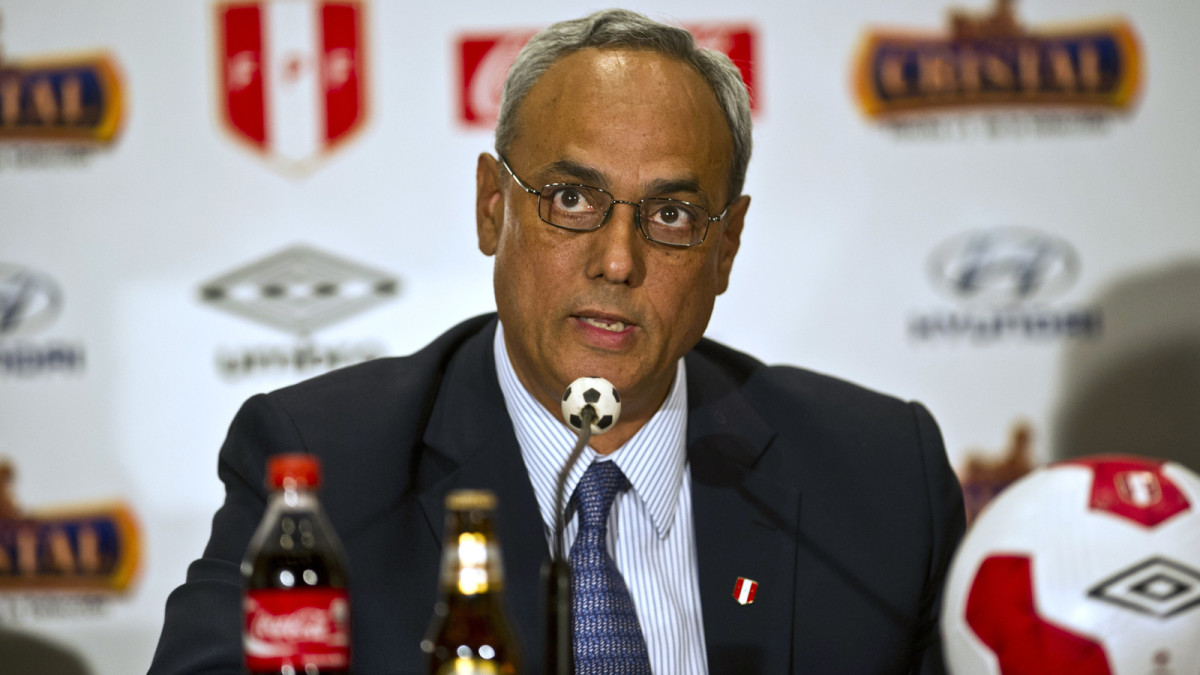
FIFA development committee; Former president, Peru football federation
Ariel Alvarado
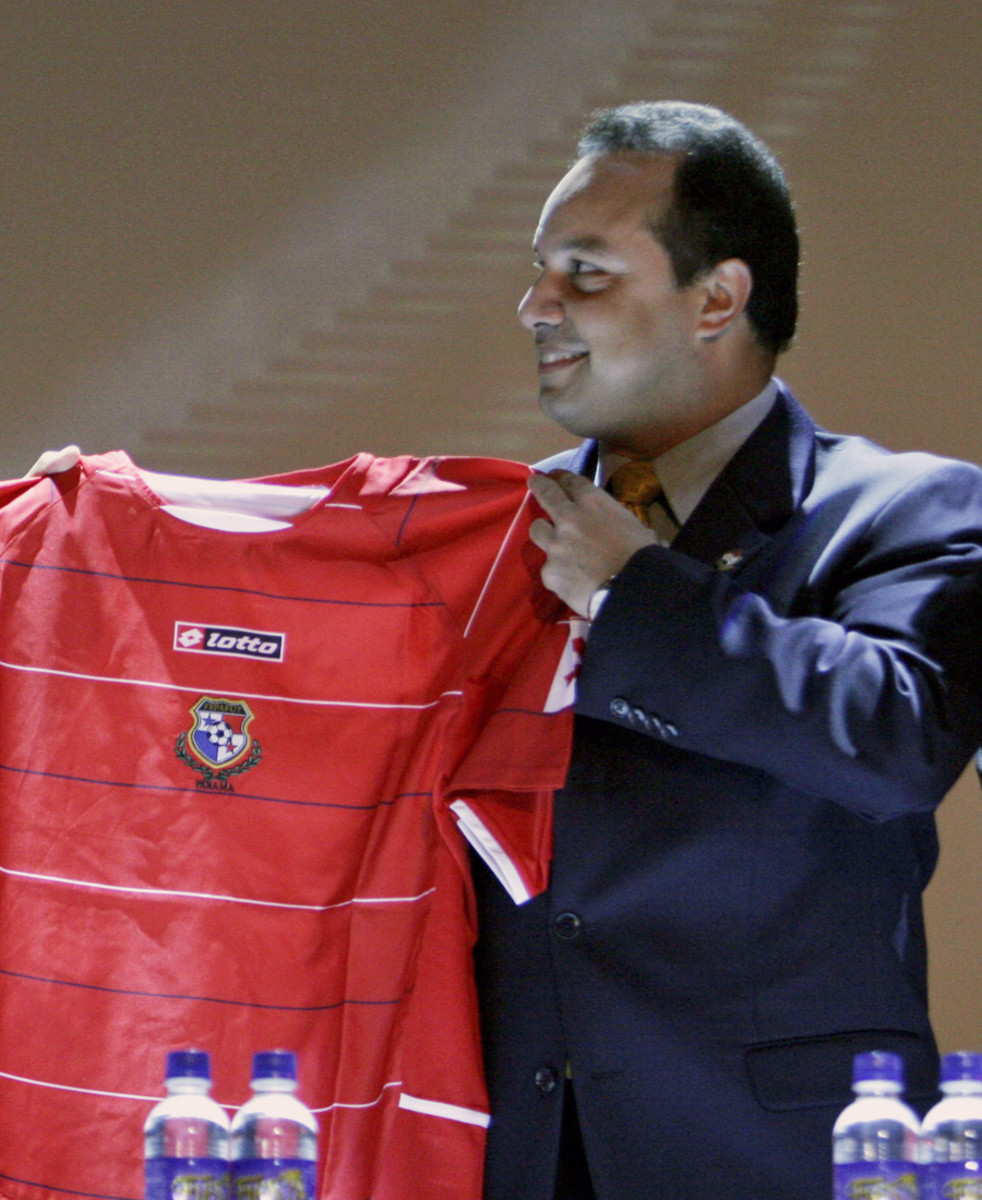
Former president, Panama football federation; FIFA disciplinary committee
Eduardo Deluca
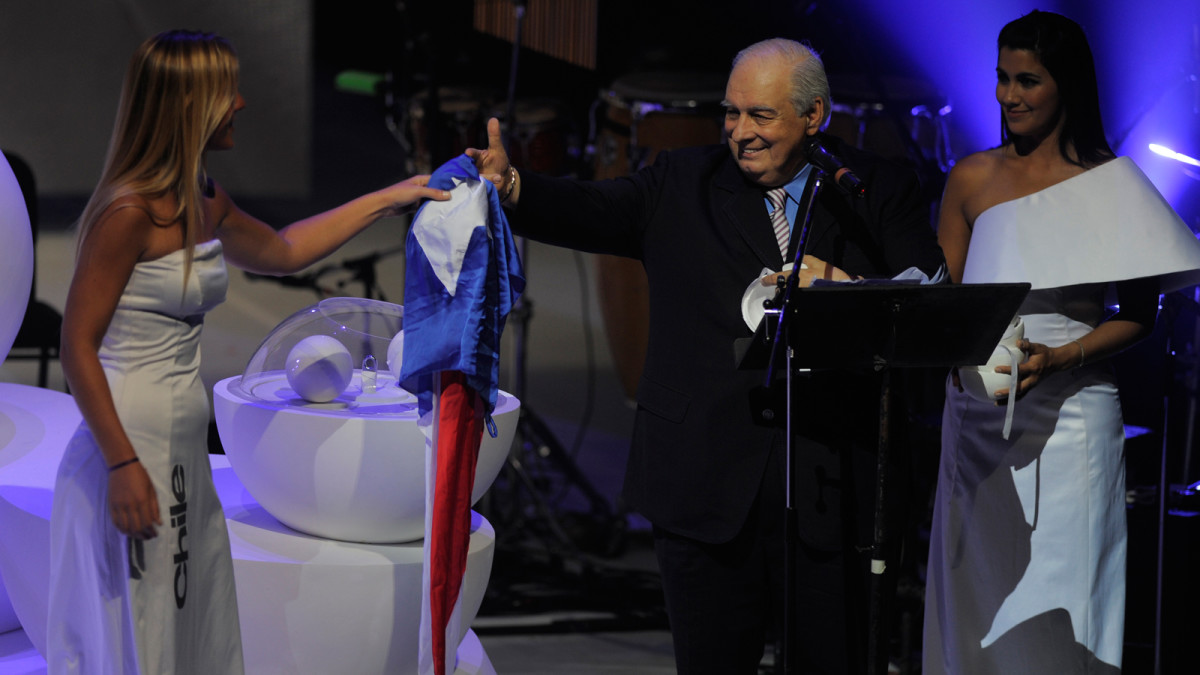
Former CONMEBOL, Argentina football federation general secretary
Luís Chiriboga
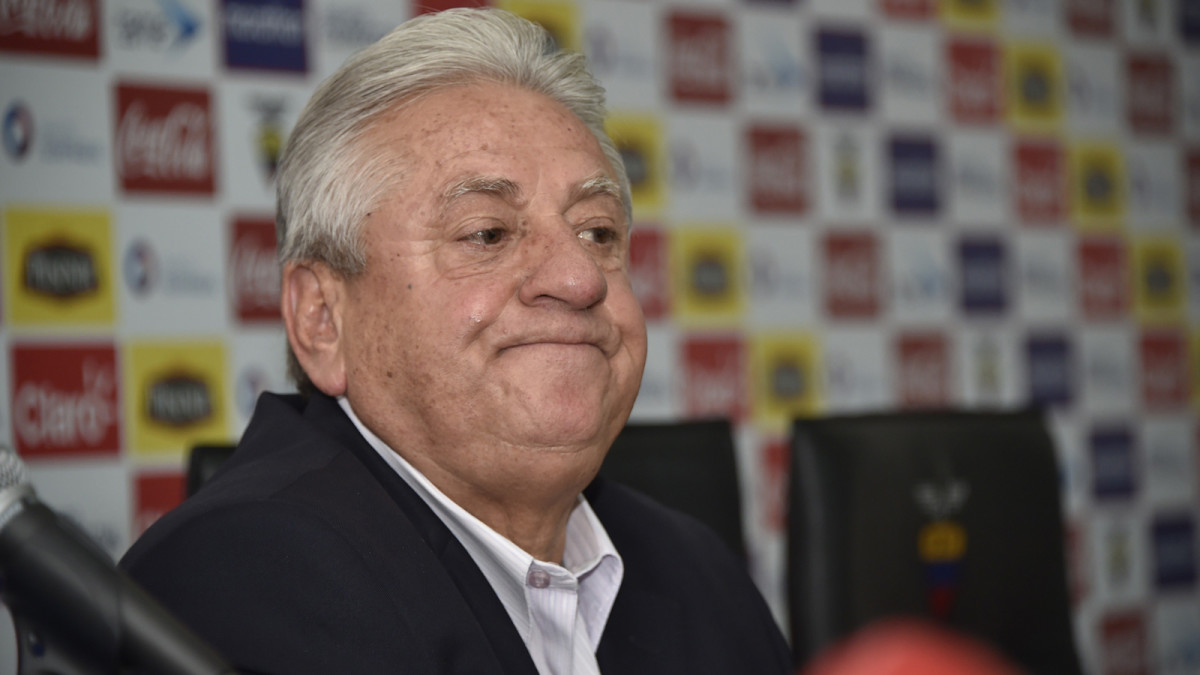
CONMEBOL executive committee; President, Ecuador football federation
Rafael Callejas
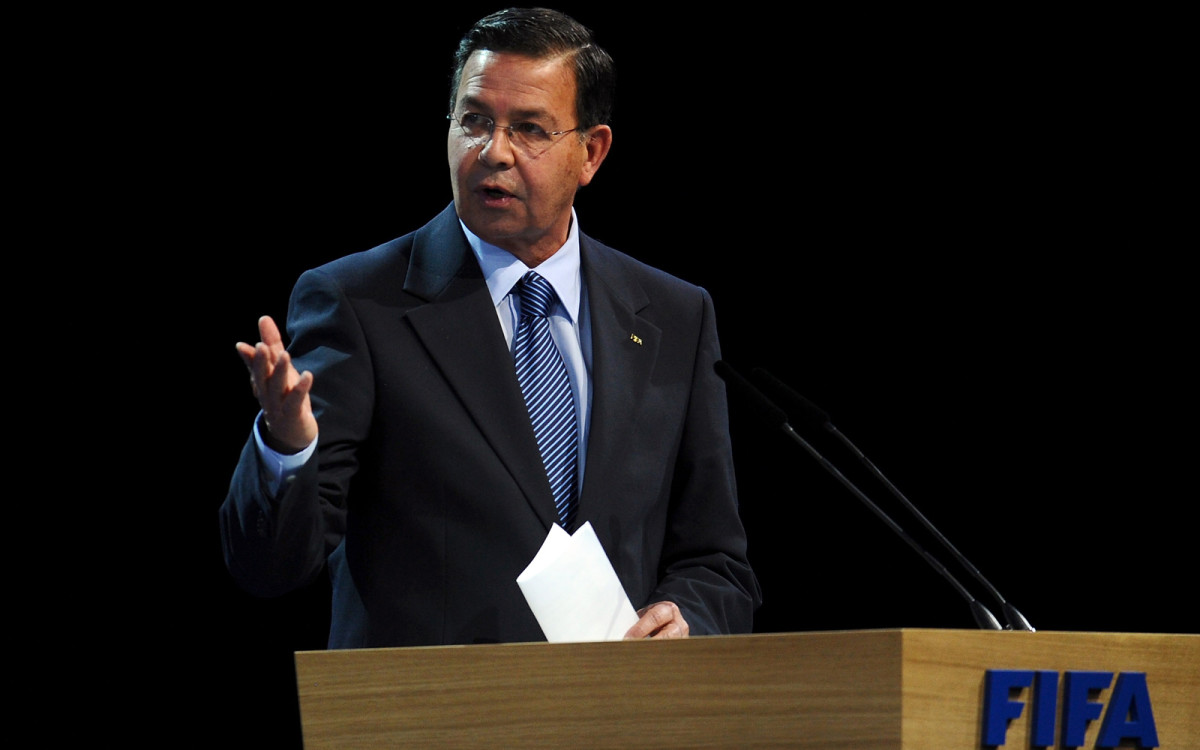
FIFA television and marketing committee; Former president, Honduras; Former president, Honduras football federation
Rafael Esquivel
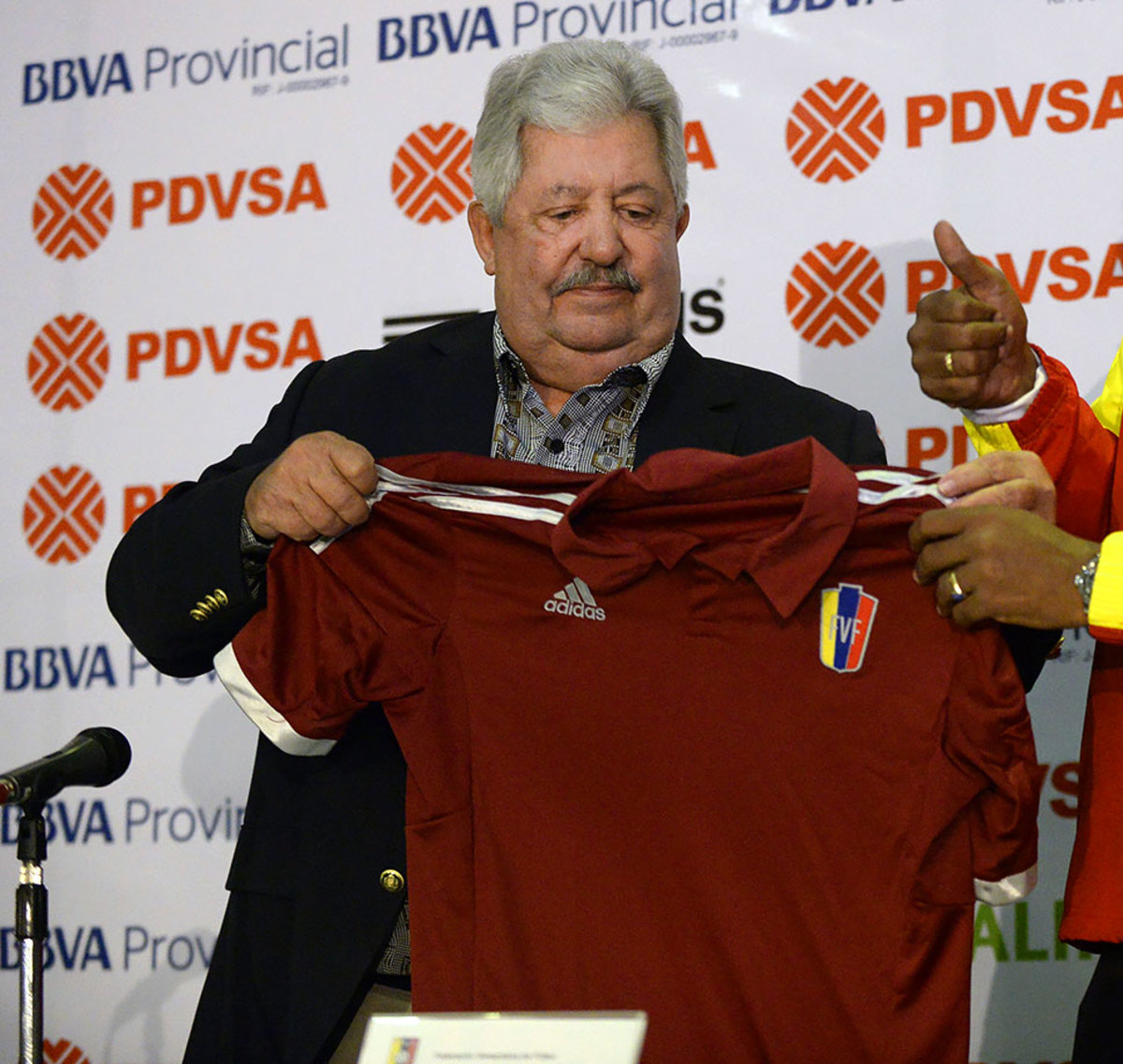
Ex–Venezuela federation president; CONMEBOL executive committee
Carlos Chavez
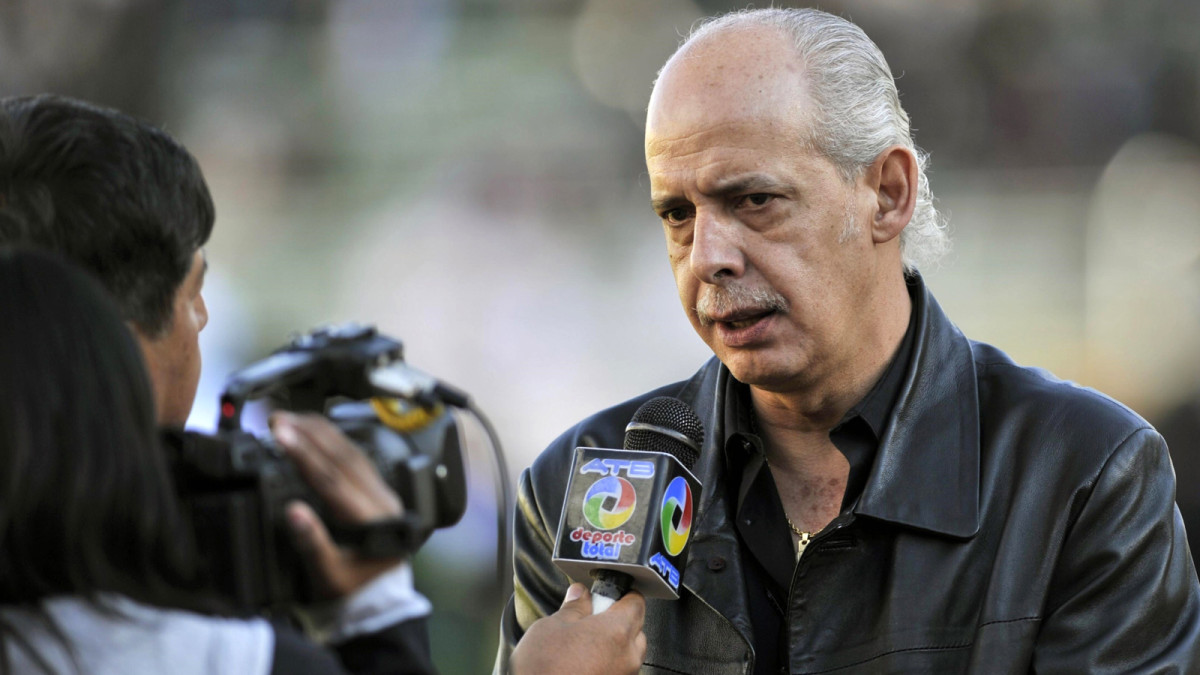
CONMEBOL treasurer; Former president, Bolivia football federation
Nicolas Leoz
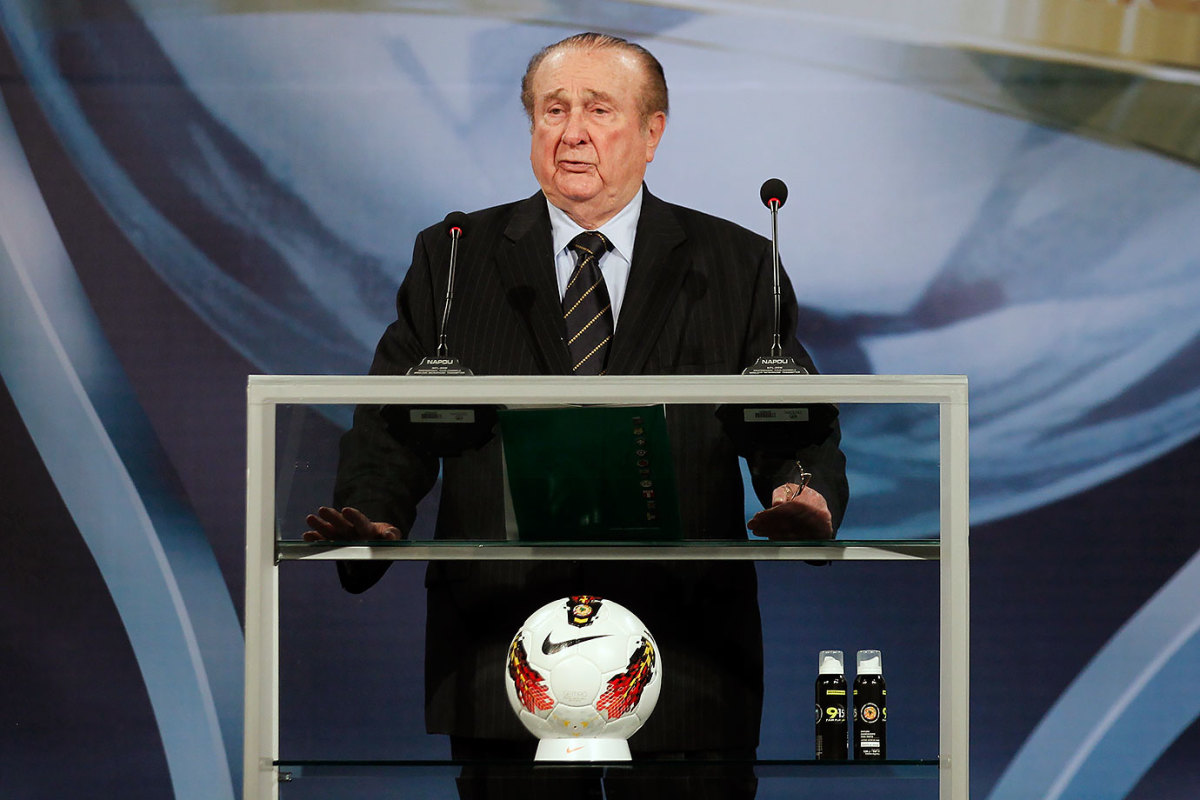
Ex–CONMEBOL president, FIFA executive committee
Julio Rocha
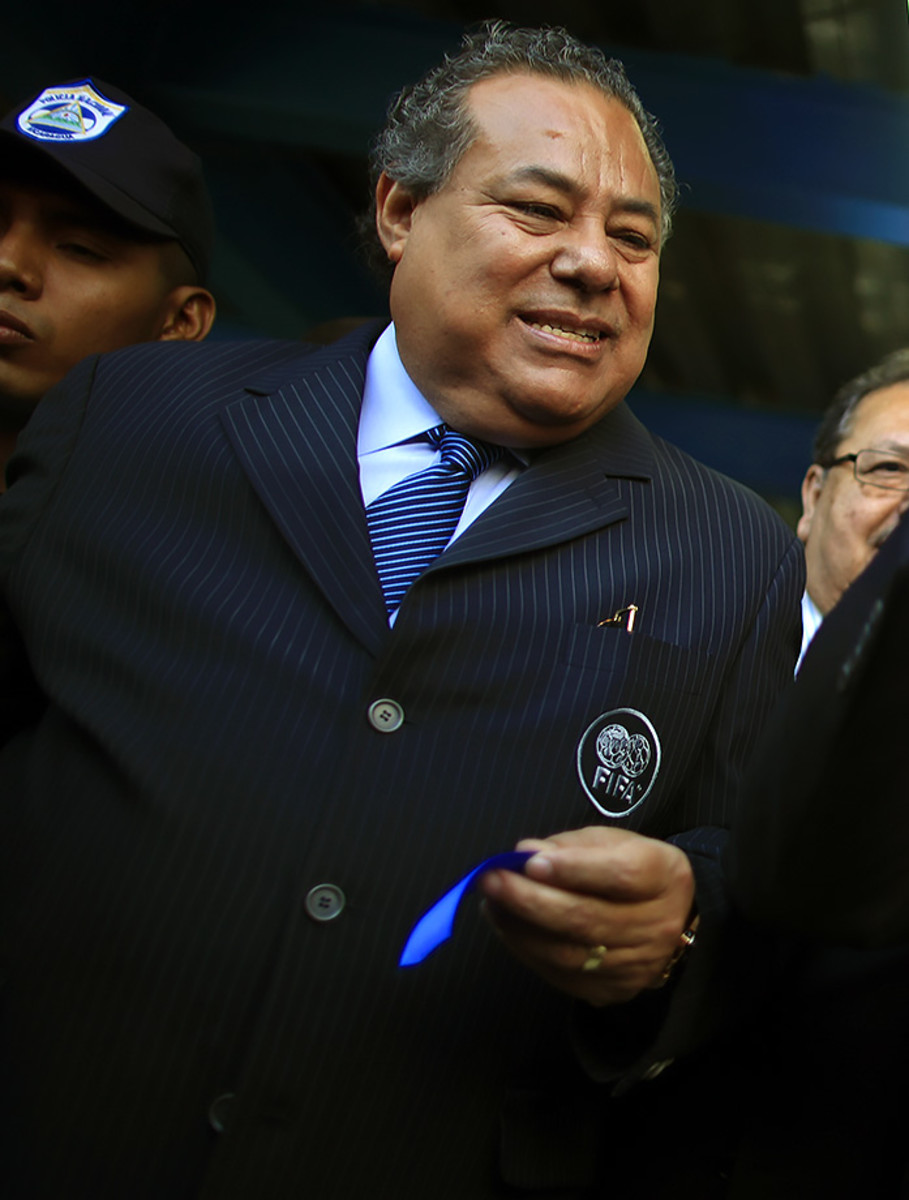
Ex–Nicaragua federation and Central American Football Union president
Romer Osuna
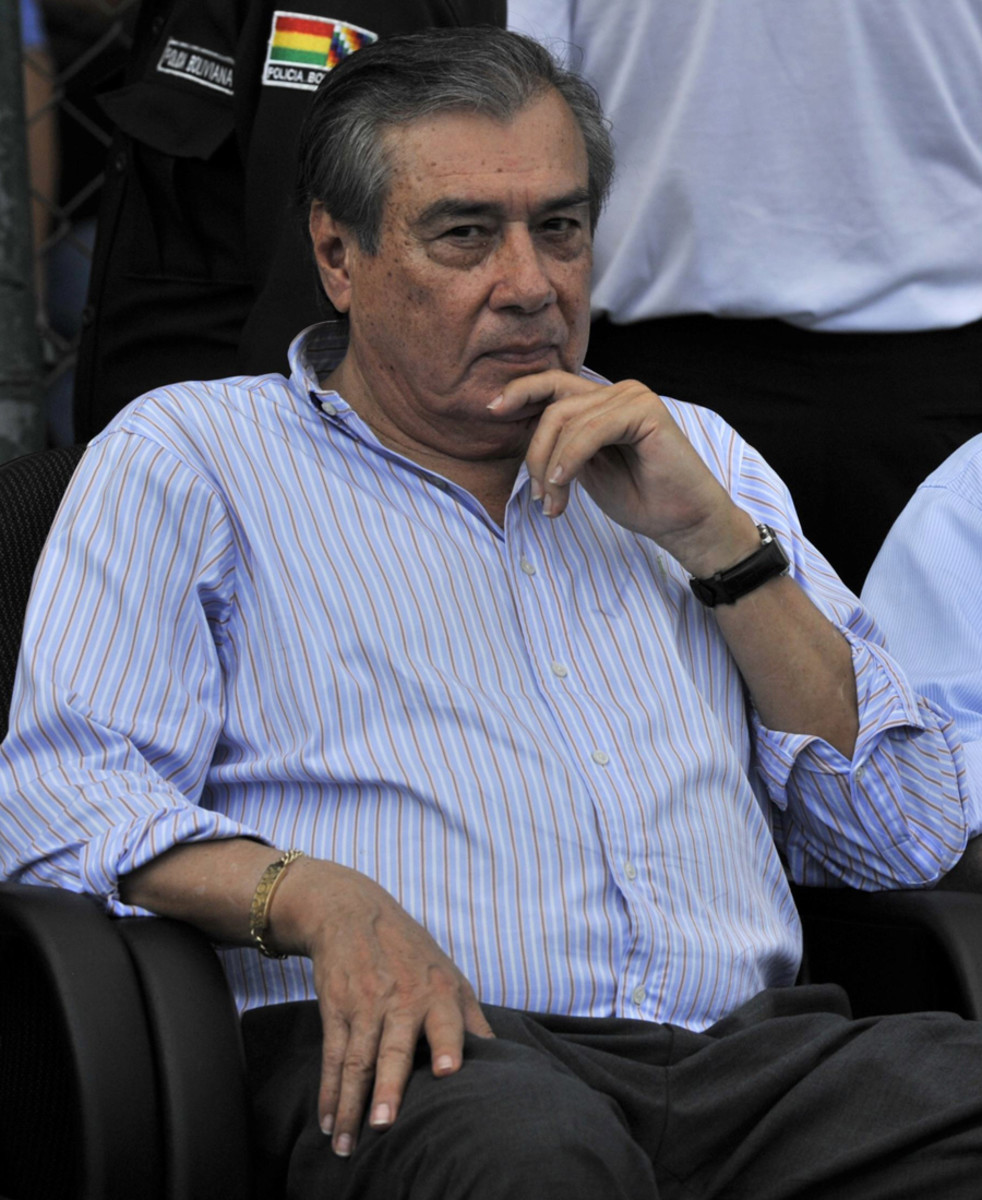
FIFA audit and compliance committee; Former CONMEBOL treasurer.
Alejandro Burzaco
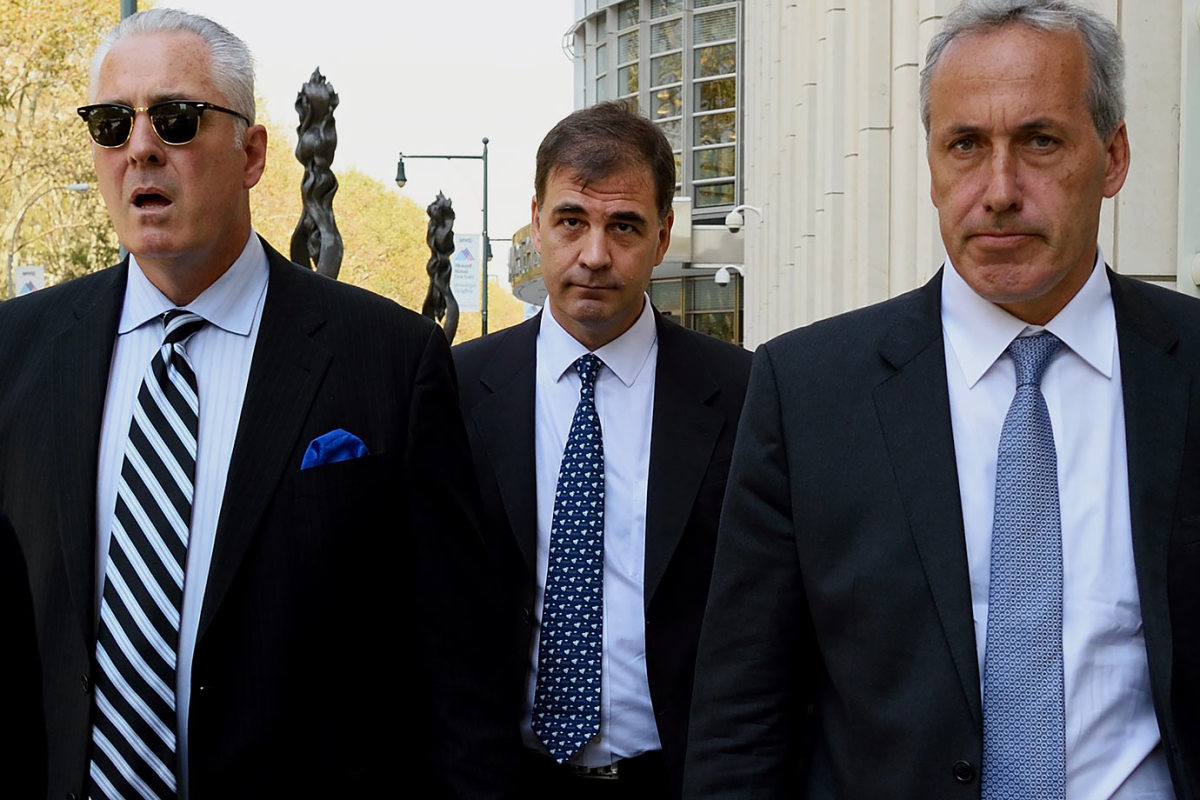
CEO of Torneos y Competencias
Aaron Davidson
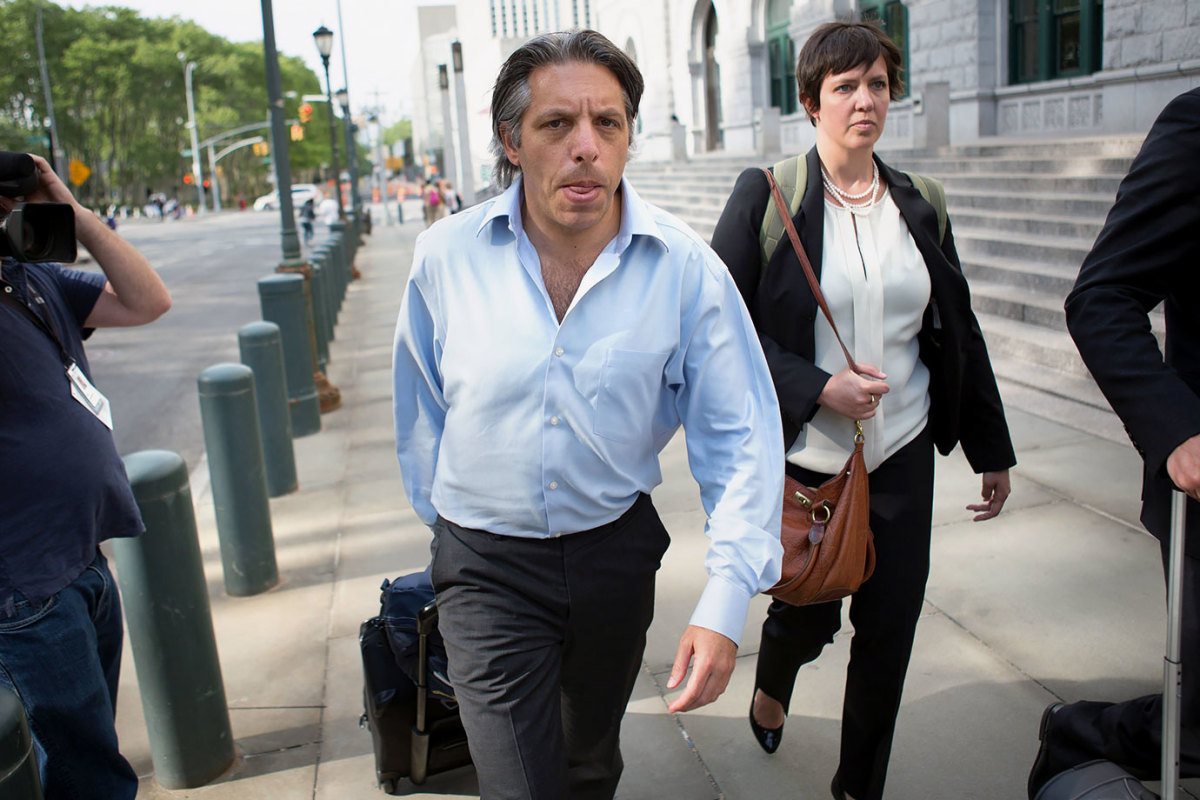
President, Traffic Sports USA
Hugo Jinkis
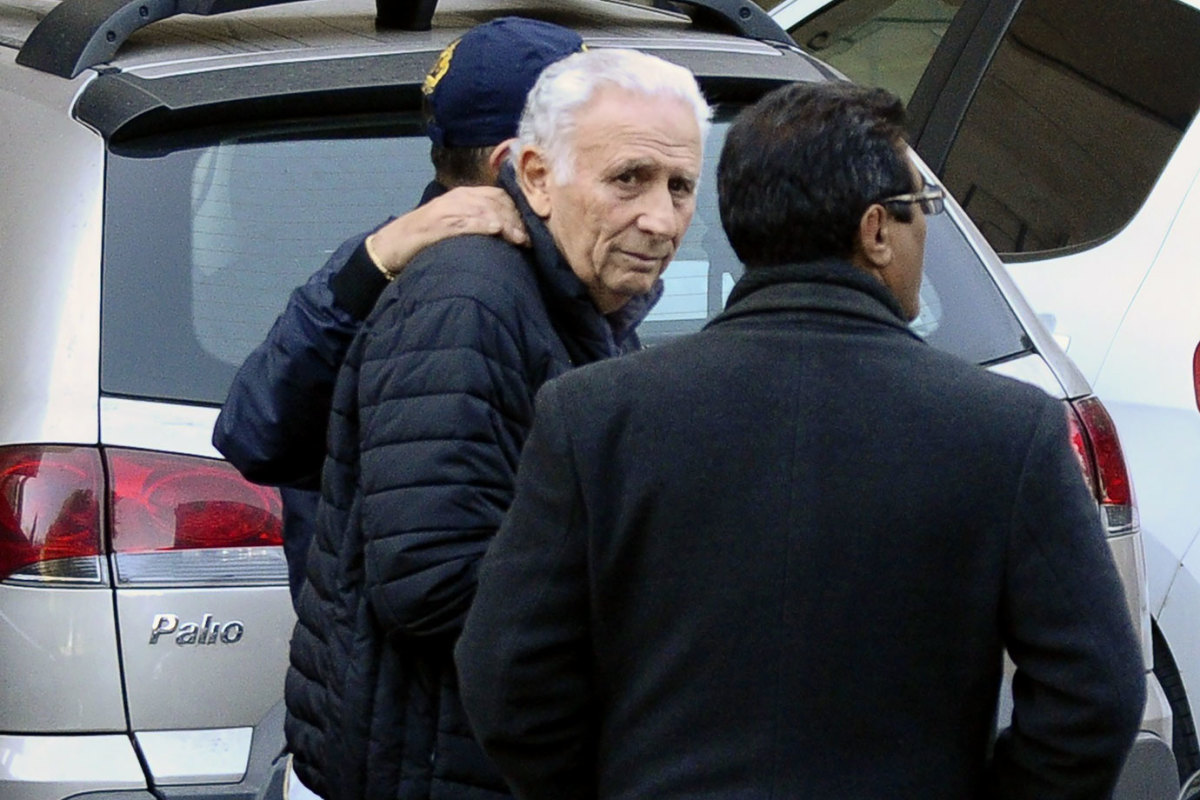
President, Full Play Group
Mariano Jinkis
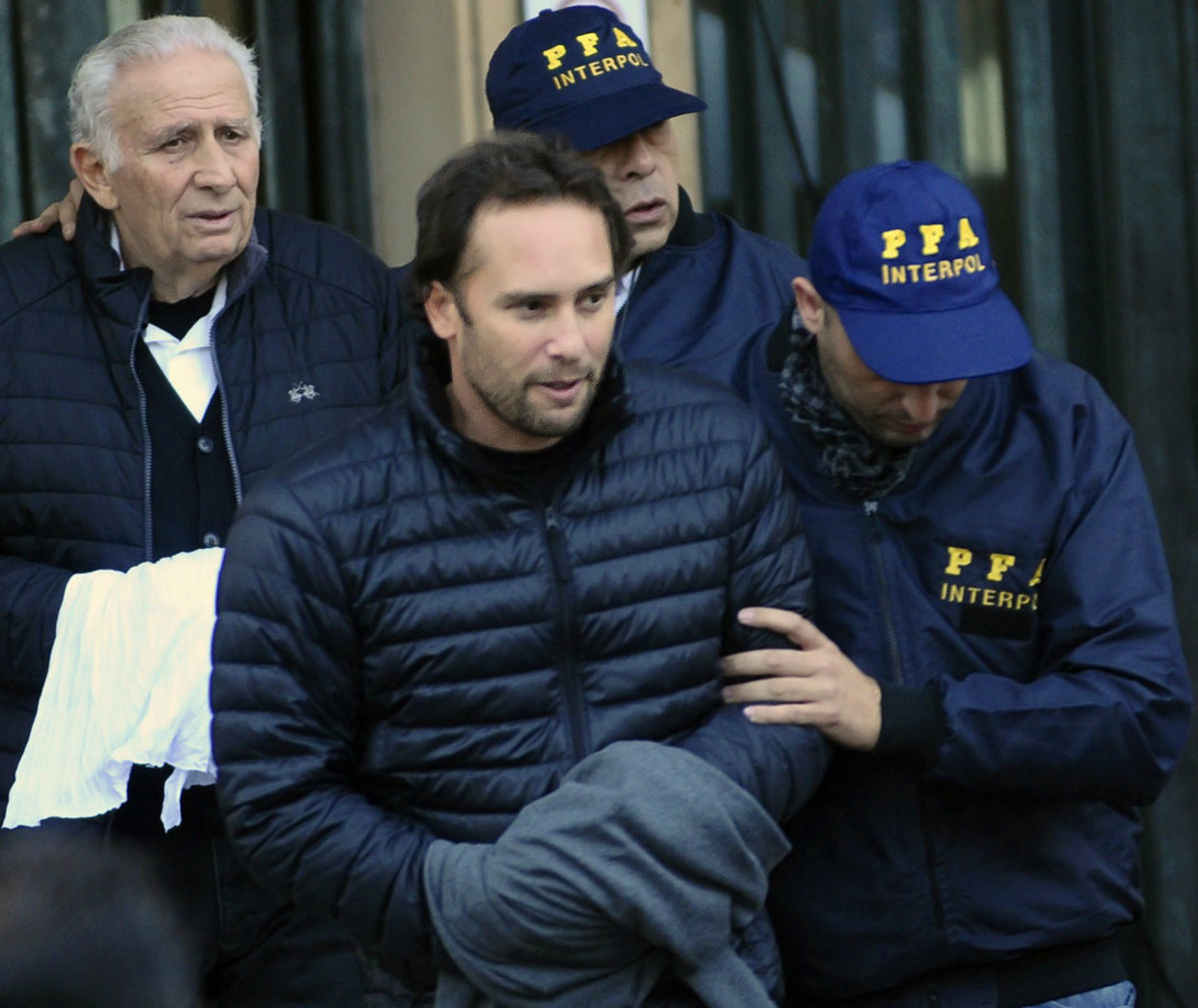
Vice President, Full Play Group
Loretta Lynch
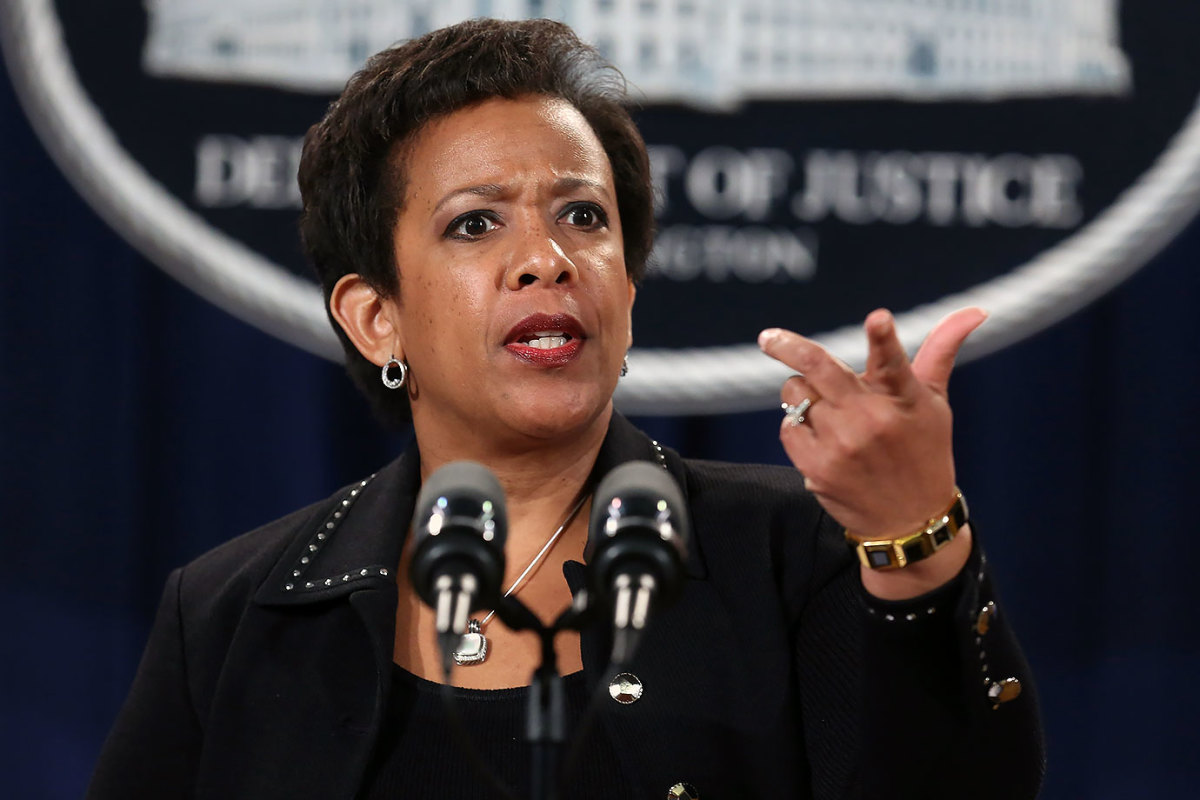
U.S. Attorney General
Michael Lauber
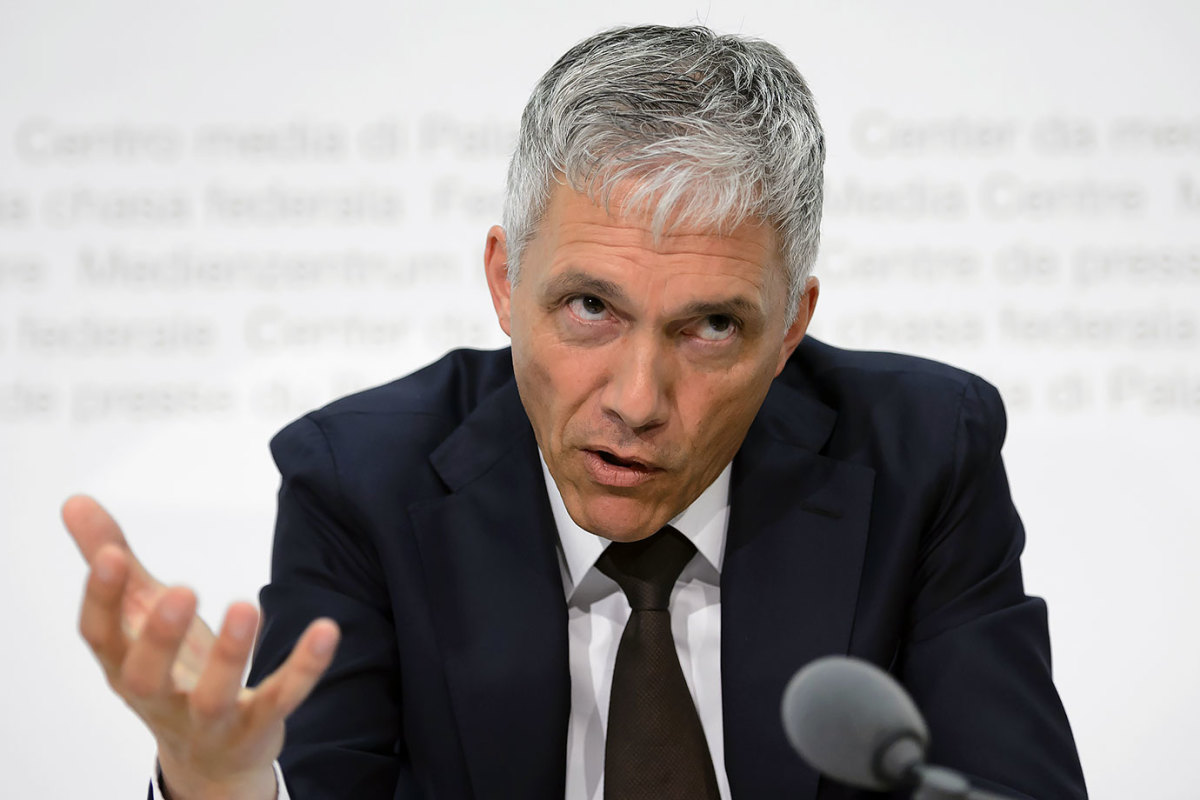
Switzerland Attorney General
The $10 millionbribe that Blazer and Warner extracted from South Africa in 2004 for the right to host the 2010 World Cup was criminal, but their cruel exploitation of 85-year-old former South African president Nelson Mandela was near tragic.
South Africa had lost the ’06 Cup to Germany, and the overwhelming sentiment within soccer was that Mandela and Africa deserved the next Cup. But Warner, then Trinidad’s security minister and a member of Parliament, was in need of political capital. Ten million or not, “Jack bluntly told us that if we wanted his vote, we must bring Mandela to the Caribbean,” Irvin Khoza, the chairman of South Africa’s organizing committee, said in 2009.
Mandela’s doctors advised against the long flight over the belly of the earth, but South African bid and government officials persuaded the tired and frail Madiba, as Mandela was known, to travel to Trinidad. On April 28, 2004, he boarded a Gulfstream V for the 22-hour flight to Port of Spain. When the G5 touched down at Piarco International Airport and Mandela stepped out, an honor guard stood on the tarmac and an eager crowd of politicians and civilians greeted him with shouts of “Madiba! Madiba!” Mandela hadn’t wanted the fanfare and was too weak to climb the steps of a podium where he was to address the adoring throng. Instead he smiled and told them simply that he had come “for two reasons: because I love you very much and because it is not easy to love an old man. So I urge you to love South Africa and this old man.”
Mandela had barely slept on the flight. His personal assistant, Zelda La Grange, later wrote in her book Good Morning, Mr. Mandela: A Memoir that she had tried to minimize Mandela’s appearances in Trinidad, to little avail: “The entire visit was a battle.”
Mandela’s stay in Trinidad was blessedly brief. He was called home less than two days later for the funeral of his first wife, Evelyn Mase, but not before attending a $1,000-a-plate dinner at the Centre of Excellence in its hard-to-reach dusty wasteland. On the evening of April 29 the center hosted a gala honoring Mandela, with the cracks in the walls covered by screens and curtains. Warner had wrung political gain from a sickly icon under the guise of bringing the CONCACAF vote to South Africa.
To the outside world, Mandela’s courage, charisma and place in history were the reasons for South Africa’s 14-to-10 winning vote over Morocco and Egypt, announced two weeks later in Zurich. Eleven years later, U.S. Attorney General Loretta Lynch would make it clear that the three tainted votes Warner had delivered were the real difference. As the South African newspaper Daily Maverick’s columnist Stephen Grootes wrote after the indictments: “We didn’t know then the cost. And particularly the cost to Nelson Mandela, shipping around the world to satisfy the craving of some two-bit crook.”
That was perhaps a little unfair to Warner, who was much more than a “two-bit” crook. After all, he’d already stolen more than $25 million from FIFA and CONCACAF.
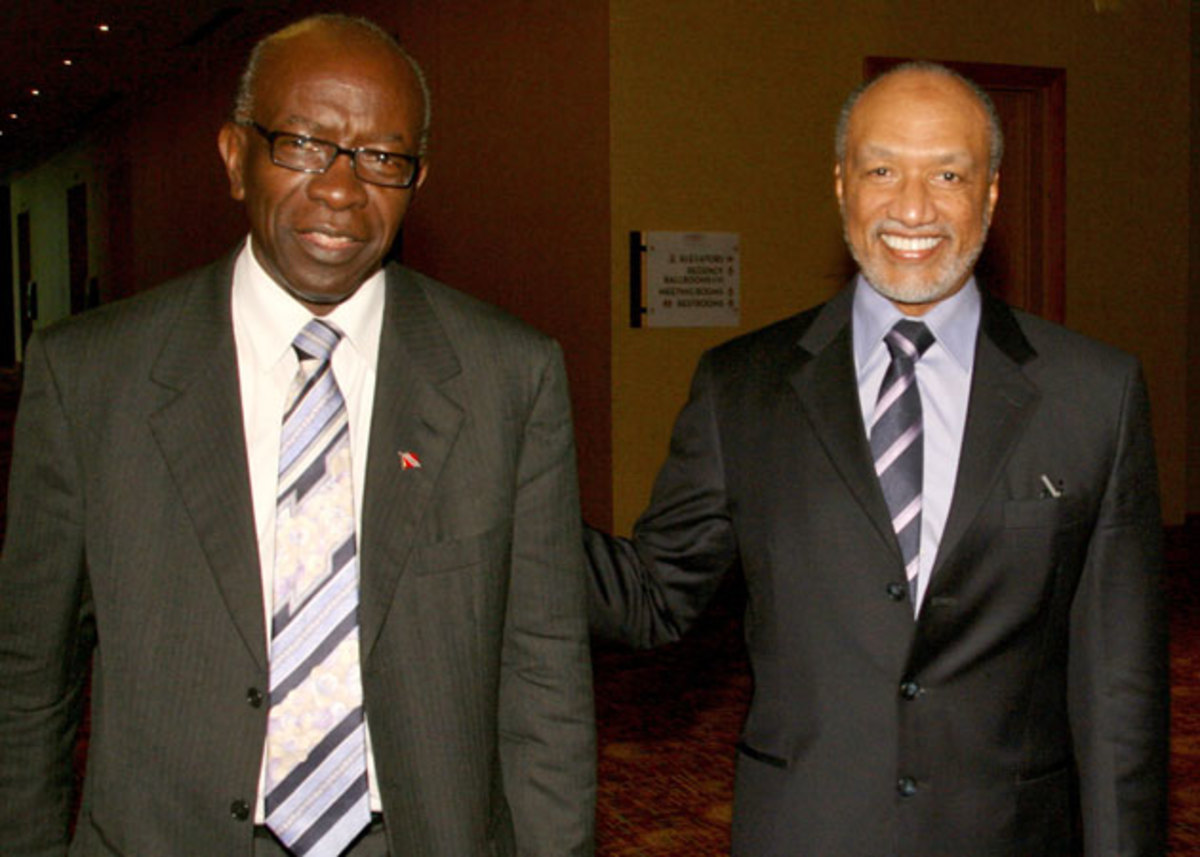
Months after FIFA’s Ex-Co chose Qatar as the site of the 2022 World Cup—a selection that stunned soccer fans and players around the world—Mohamed bin Hammam, president of the Qatar Football Association and of the Asian Football Confederation, acted to capitalize on his nation’s new soccer clout. He announced in March 2011 that he was running to unseat Blatter as FIFA president.
Bin Hammam vowed to battle corruption and increase FIFA’s financial transparency—while at the same time he arranged to offer cash to voters in the Caribbean with Jack Warner’s help. The Qatari billionaire aimed to pay a total of $1 million to leaders of the various CFU member associations in Trinidad, investigators would later find. Presidents of the local federations and their general secretaries received an e-mailed invitation from Warner to an all-expenses-paid meeting at the Hyatt Regency in Port of Spain on Tuesday, May 10.
U.S. Soccer president responds to USWNT's wage discrimination claim
Bin Hammam and his nine-member delegation arrived in Trinidad on the eve of the meeting. The following day the CFU’s general secretary, Angenie Kanhai, retrieved a suitcase packed with envelopes of cash from Warner’s office, she would testify. CFU representatives gathered at the Hyatt on Tuesday morning and ate breakfast in a conference room where bin Hammam made a 45-minute speech explaining why he would make an excellent FIFA president.
He promised that, if elected, he would give the associations “more say, more support and more pay.”
At a luncheon later Warner instructed everyone to go to one of the hotel conference rooms and collect their “gift,” as Fred Lunn, vice president of the Bahamas Football Association, would explain in an affidavit. When Lunn was ushered into the room, CFU administrator Debbie Minguell asked him to sign a registration form. Lunn added in his affidavit:
She then handed me a manila envelope with “Bahamas” written on it. I opened the envelope . . . and stacks of hundred-dollar bills fell out . . . . I asked them what it was, and they told me that it was $40,000. They said it was a “gift” from the CFU. . . . I told them that I had not been authorized to accept such a gift. . . . Debbie reiterated that it was just a gift, and I should accept it. She also told me not to tell anyone about the money.
Lunn contacted his association president, Anton Sealey, who told him to immediately return the money. Sealey then called Chuck Blazer. Blazer “indicated that he was not aware of any payments and that he had not authorized any CONCACAF funds to be distributed as cash gifts,” Sealey recalled in his own affidavit. (Several other CFU officials also refused the money.) Blazer sent Warner an e-mail warning him, in code, that “MBH’s ATMs”—Mohamed bin Hammam’s payoffs—“were doing some damage, and we need to talk.”
The day after Sealey called Blazer, an angry Warner summoned CFU members to a hotel conference room. Warner expressed his extreme disappointment that word of the “gifts” had leaked. He insisted that both CONCACAF and FIFA knew about the payments and that “any country that doesn’t want the gift has the right” to return it to bin Hammam. “What I am telling you, even Mr. Blatter is aware of, no secret,” Warner said. “I told Blatter also what he gets as well.” He explained that cash was simply the most convenient gift available: “It was given to you because [bin Hammam] could not bring . . . some silver trinkets and so on, and something with Qatari sand.” Warner dismissed any moralizing: “If you are pious, go to a church, friends.”
USWNT vs. USMNT equal pay discussion and its complexity
Later that day Warner called Blazer to reassure him that he had informed Blatter about the money and that Blatter had no qualms about the payments. Three days after Sealey called him, Blazer contacted FIFA’s general secretary to advise him of an apparent violation of the organization’s code of ethics. Blazer couldn’t see any way to avoid making the call. Too many people knew about the payments, and one of them had come to him directly with a complaint.
Warner was floored that his friend reported him to Zurich, and he vowed revenge. He promised to expose Blazer and unleash a “tsunami” of information that would hit FIFA in the “fullness of time.” Warner ripped Blazer’s “ingratitude” as “worse than witchcraft” and blamed a “Zionist plot” against himself and bin Hammam, a clear attack on CONCACAF’s Jewish general secretary.
In a lightning-fast response that was unusual for FIFA—and that ensured another term for Blatter in the June 1 presidential election—the organization suspended both Warner and bin Hammam from all soccer administration activities on May 29, and bin Hammam bowed out of the race for president. By June 11 FIFA had announced that Warner was resigning from all international football organizations, and it barred bin Hammam for life from soccer activities.
Besides Warner, the long list of people charged by the U.S. in the FIFA scandal included his sons Darryl and Daryan, who copped to counts including wire fraud and money laundering. Daryan paid a $1.1 million fine and agreed to pay more at sentencing.
Meanwhile, in Port of Spain, Jack Warner appeared before a crowd in a run-down neighborhood and compared himself to an Ebola victim as he proclaimed his innocence and touted his candidacy for reelection to Parliament. He surely figured a seat in Parliament couldn’t hurt his fight to avoid extradition to the U.S. Warner denied publicly that he would ever cooperate with U.S. law enforcement, saying he had not been afforded due process.
On Sept. 21 Warner was in a Port of Spain courtroom awaiting a ruling on extradition from Trinidad attorney general Faris Al-Rawi. He had lost his election for Parliament and at least some of his political clout, but rumors circulated that he had cut a deal with the new prime minister, Keith Rowley, that saved him from the clutches of the U.S. Justice Department. Flanked by reporters and television cameras, Warner emerged from the courtroom with a delay in hand. His lawyers would eventually secure a judicial review of the extradition process itself, putting off their client’s next court appearance until Feb. 19, 2016.
The U.S. indictment describes Warner as a man engaged in racketeering, bribery, wire fraud and money laundering. One person close to the investigations would say, “The worst person I came across in football was Jack Warner.”
